Observer-comprendre /S’émerveiller préserver
Canosphère lance une collection de livre sur la rivière Dordogne, entièrement auto financée, qui a pour but de décrire la vie au cœur de la rivière, au plus près de l’eau.
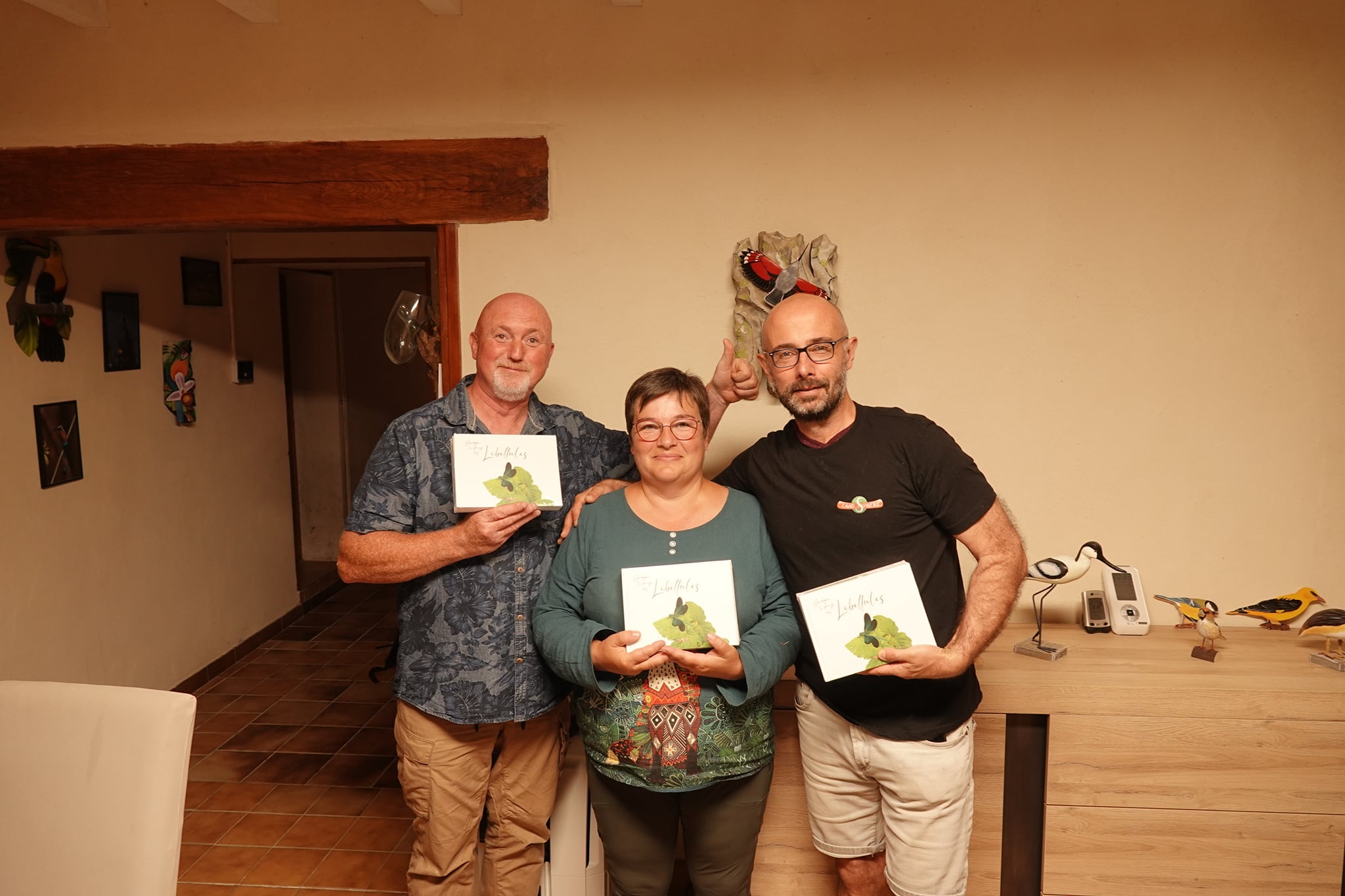 La ligne éditoriale : des textes scientifiques et des photographies pour comprendre et mieux observer, des textes poétiques et des aquarelles pour s’émerveiller.
La ligne éditoriale : des textes scientifiques et des photographies pour comprendre et mieux observer, des textes poétiques et des aquarelles pour s’émerveiller.
L’ensemble des produits de la vente de l’ouvrage sera reversé à l’association Nature en Périgord afin de les soutenir dans leur campagne de protection ou de recensement des nombreuses espèces aquatiques en Dordogne.
Un premier ouvrage, Dordogne pays des libellules, a été lancé en 2021
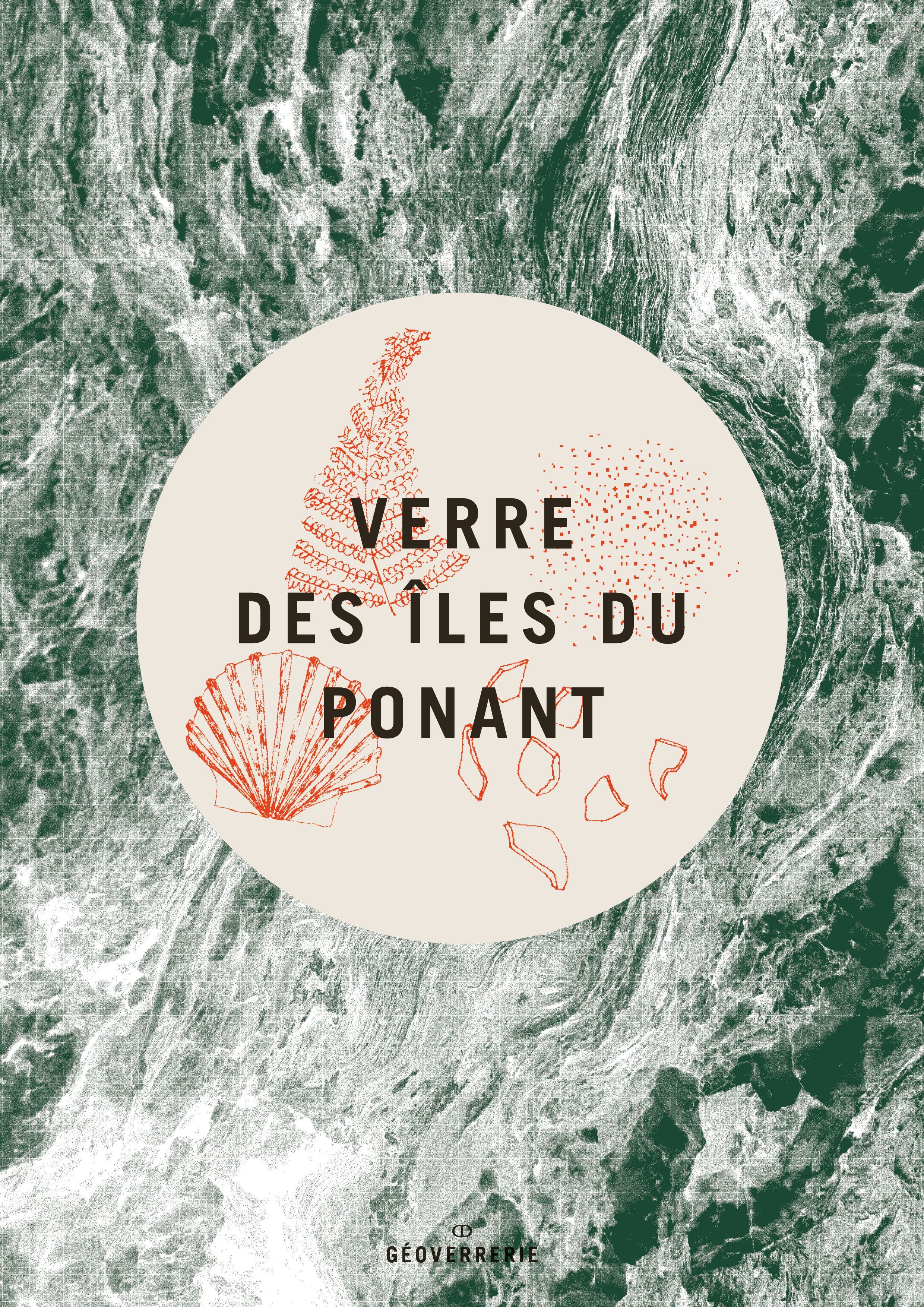
 .
.
Contact: Savoir-faire des îles du Ponant (SAFIP)
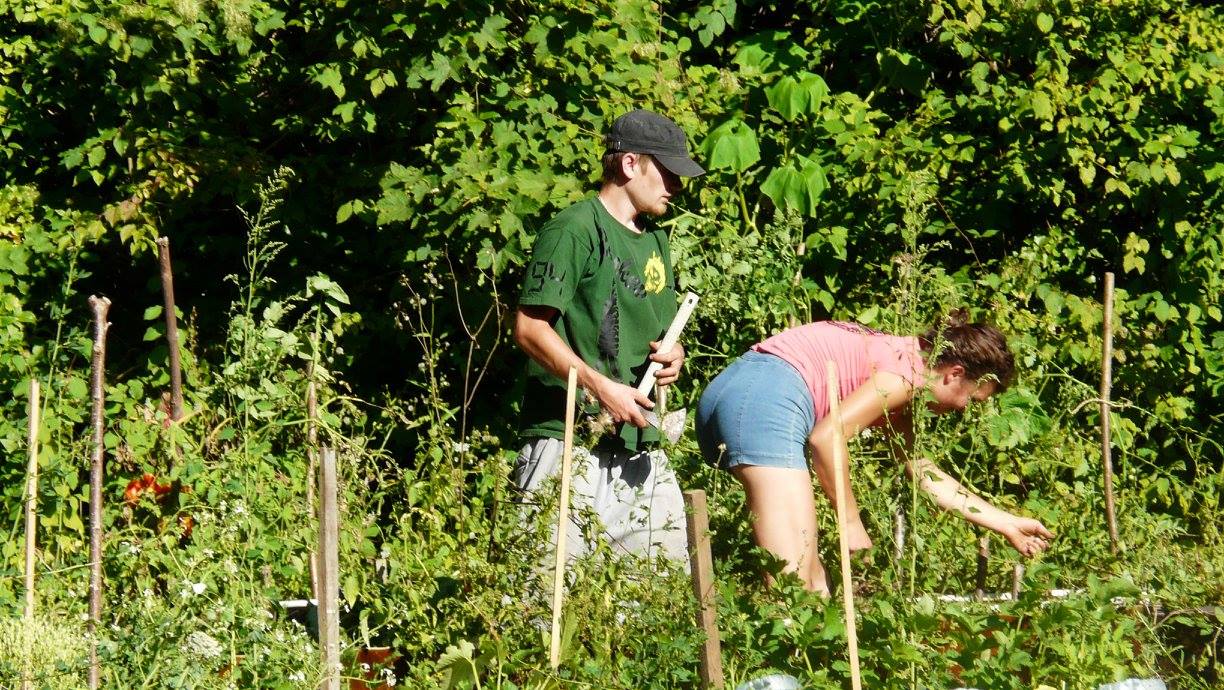
- Contact: Mycorhize
The shared workshop on the island of Molene, proposes to create a digital museum with schoolchildren on the theme of nature and the environment. To help them better understand and enrich their knowledge of the environment in which they live, nature observation tools will be designed and manufactured using a 3D scanner
Presented by Euphytos, Laboratorio Erboristico Artigianale of Rossana, it aims to rediscover an ancient tradition, a real profession that is almost totally unknown today: the recognition, harvesting and use of wild medicinal herbs. The project involves a series of workshops to discover the secrets of simple and unknown medicinal herbs, their aromas and specific properties.
Ma Quey radio is a Queyrassin cross-border local radio project with Italy to develop social cohesion beyond the mountain peaks, using culture, music, a meaningful description of a common territory and its sharing. Inspired by the collective culture of Les Escartons, it is thought of as a common medium to be informed, shared, discovered, entertained, proposed ideas, themes to be discussed, explored (programming, events, concerts, sound landscapes, shared podcasts).
The project aims to increase the diversity of the trails, renovate the heritage built by the inhabitants of the time and indirectly strengthen the local economy (cottages, inns, campsites, hotels, guest rooms, restaurants, bars, grocery stores...). Many trails, from Galeria to the Fango Valley, allow people wishing to discover the area to extend their stay. The renovation of sheepfolds, former charcoal houses and dry-stone walls is also essential in order to bring up to date and share ancestral know-how.
The objective of this project is to inform local populations and visitors with a diachronic state of knowledge on the relationship between man and environment. Communal panels will be installed to highlight the work of research and conservation actors.
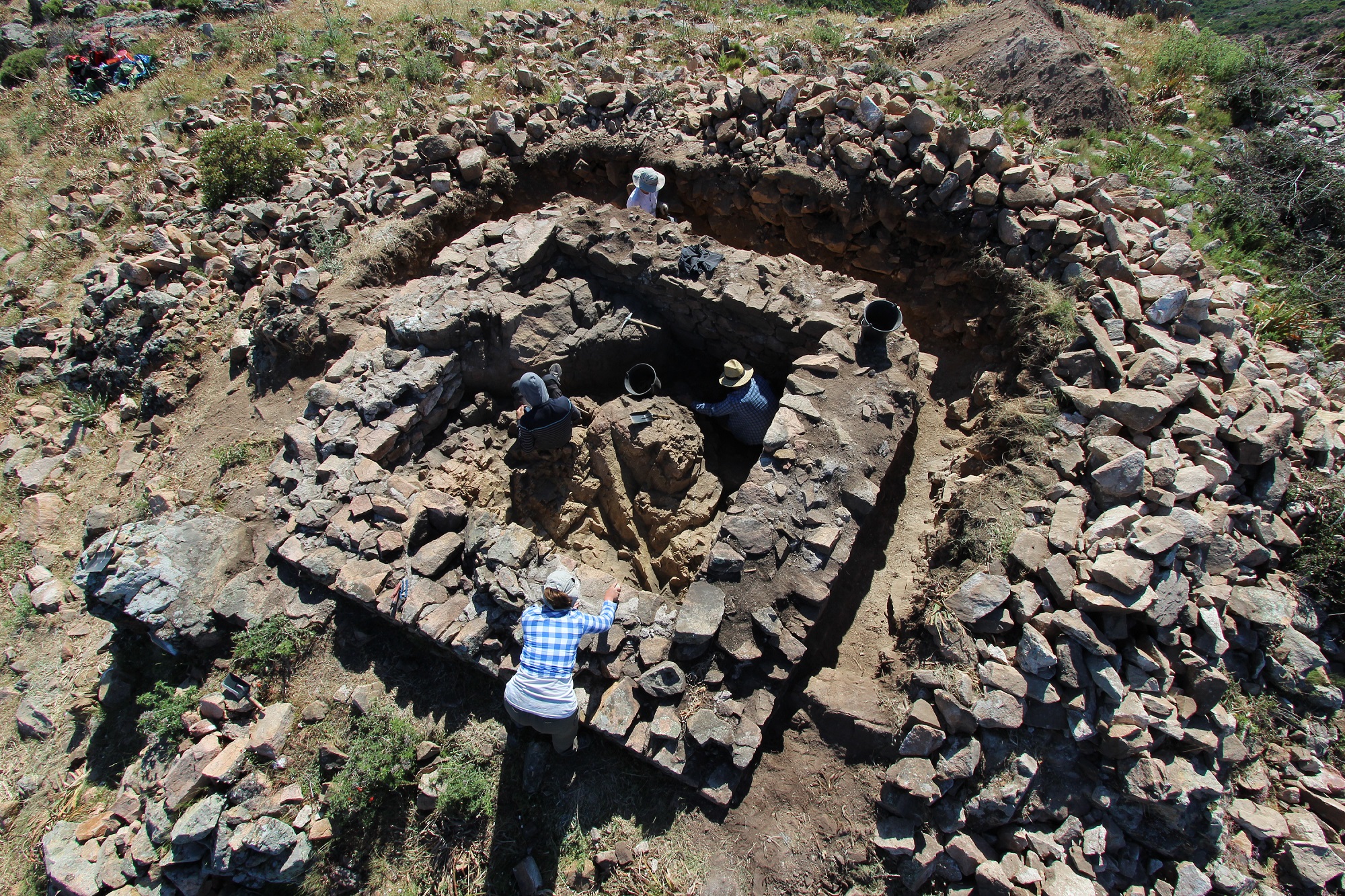
This approach is part of a willingness to develop sustainable tourism, leading visitors to question the long times, rhythms and evolution of the places they visit.
Contact: jbaptiste.mary@gmail.com
Port-Louis, a municipality in the north of Grande-Terre, has two strong features, an agricultural hinterland (mainly cannery) and a varied coastal façade, largely open to the Grand-Cul-de-Sac-Marin and which conceals important wetlands, particularly the Port-Louis marshes. The municipality, through this fortnight of the coastline, offers the public throughout the island a program of varied activities and guided tours that aims to better understand the richness, interdependence and complexity of these ecosystems. Together they also help to better understand the relationship between these environments and human life through their nourishing, recreational and service functions to human communities.
This project, which is in its 3rd edition, is part of an agricultural basin shared between cane cultivation and market gardening tradition. It aims to revive the production of the different varieties of peas as a basis for traditional meals. In a context of controlling meat consumption in terms of environmental impacts, emphasizing vegetable proteins is a way of offering an alternative that respects nature and the population's energy needs. In addition, it is well established that leguminous plants also contribute to good soil health. This project of the municipality of Anse-Bertrand is part of a larger project led by the urban community of northern Grande-Terre to supply the central kitchen with local products in a logic of short circuits offering a complementary income to farmers in the area.
This project, which is part of a broader dynamic of the social and solidarity economy led by the association, is based on a simple observation.
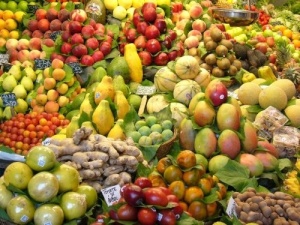 Guadeloupe, a tropical island country, experiences a massive influx of fruit at the time of tree fruiting, which exceeds the daily consumption of its inhabitants. As a result, we are witnessing real carpets of fruit that rot on the spot. The project therefore aims to enhance their value by processing them (various confectionery products) and redistributing them free of charge through solidarity channels or by selling them and redistributing the proceeds of sales to the most needy. The processing and valorisation operations are carried out by volunteers of the association.
Guadeloupe, a tropical island country, experiences a massive influx of fruit at the time of tree fruiting, which exceeds the daily consumption of its inhabitants. As a result, we are witnessing real carpets of fruit that rot on the spot. The project therefore aims to enhance their value by processing them (various confectionery products) and redistributing them free of charge through solidarity channels or by selling them and redistributing the proceeds of sales to the most needy. The processing and valorisation operations are carried out by volunteers of the association.
Contact : Association K. Expres
To raise awareness among the youngest people about the ecological transition through the discovery of the world of bees, this is the challenge launched by the Red Bee leaders. This farm, which offers companies and individuals the opportunity to contribute to the protection of bees by sponsoring hives, has thus devised this project to set up an educational hive with the primary school of Vers-Pont-du-Gard. An animation cycle on the social life of the colony, honey plants or the use of hive products will make children aware of the major role of the animal in our ecosystem. An innovative project that could be extended to other municipalities in the Biosphere Reserve.
To teach in and through nature in order to get to know it better and preserve it, this is the objective of the "Tell me about your nature" project. For a year, the COGard association led the students of the Saint-Chaptes school to discover the nature around them and the different tools and techniques to talk about it.
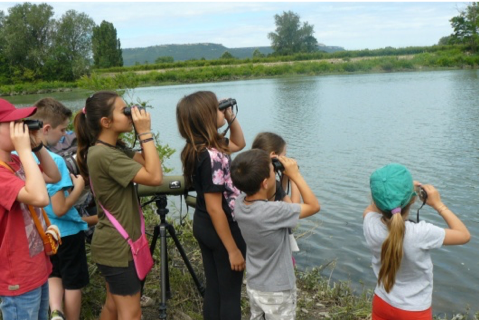 Through storytelling, drawing and photography, students were able to express their perception of nature and strengthen their connection with it. The schoolchildren will now gather their creations in a booklet and distribute it in order to share their experience and thus become ambassadors for their territory.
Through storytelling, drawing and photography, students were able to express their perception of nature and strengthen their connection with it. The schoolchildren will now gather their creations in a booklet and distribute it in order to share their experience and thus become ambassadors for their territory.
Contact: Association COGard
The Sanilhac-Sagriès school is involved in one of the ten experimental educational land-based areas in France, initiated by the French Biodiversity Agency. Its innovative and participative approach places the students of the 4th and 5th grades as real managers of a natural area, in the Regional Nature Reserve of the Gorges du Gardon. Field trips, inventories and meetings with local users allow students to create a strong link with their territory. All decisions taken in the "Children's Council" thus feed into a management plan for the area that will lead to concrete conservation actions.
During their participation in the Children's Parliament in 2018, the students of Fromont proposed a law on hedge planting: thus the Diversithaies project was born. In December the school planted 18 shrubs. Following this first success, their objective is to continue planting hedges but also to add other facilities such as nesting boxes, explanatory panels....
Tous en trott offers a new way to discover the Fontainebleau forest. Electric scooter rides designed in partnership with the National Forest Office are both fun thanks to the original means of transport and accessible to all, whatever their physical condition, even over long distances. The routes have been designed with respect for the forest on roads without risk of erosion. The wonder offered by the forest serves as a vehicle to inform on the good practices and habits to adopt in order to respect and preserve this exceptional environment. The support allows us to reconnect with the forest, a magnificent and fragile natural environment that is sometimes far from our lifestyles.
Savoirs et Partages (Knowledge and sharing) based in the South of the Seine-et-Marne, offers agri-tourism holidays in France (Brittany, Provence, Jura, Burgundy). Aware of the richness of the local terroir, the association has been organizing culinary workshops since 2012 using vegetables from the association's vegetable garden and local producers. Since 2014, Savoirs et Partages has also been organizing a food market via La huche-qui-dit-oui in Thomery, which has allowed them to get to know local farmers and artisans better. Thanks to this network, the association is currently developing agritourism holidays in Brie and Gâtinais. A discovery over 2 or 3 days in small groups of the specificities of the terroir, the forest biotope, permaculture, beekeeping, aromatic and medicinal plants. The launch is scheduled for September 2020.
Cooplicot's objective is to give everyone access to products that are both tasty and healthy, and that respect the environment and producers alike. For 18 months, Cooplicot has been working with local organic farmers: members provide 3 hours of volunteer work per month to keep margins at a minimum (10%). The small store is opened every two weeks in a premises lent by the Moret Seine and Loing community of municipalities and plans to move more permanently to the premises of the old Saint-Mammès station.
An escape game will be built by the students of the ULIS (Localized Units for School Inclusion) program in a situation of disability. The SMETOM of Nemours and the SMICTOM of Fontainebleau (collection and treatment of household waste) will support the students in the construction of the scenario for this escape game. The enigmas will be both numerical but will also require manipulation and teamwork. The students of the ULIS system will thus become game leaders within and outside the school (several schools in the sector have been interested), thus offering these students the opportunity to be proud of their work and allowing a better integration.
The Calviac Zoological Reserve was created in 2008, with the aim of preserving some of the most endangered animal species, through captive breeding programmes coordinated at the European level and also by operating directly in the field, as for European mink.
It allows the reproduction of many species under its management, sets up educational workshops for a school audience, and ecological management of the site.
The Calviac Zoological Reserve contributes to the conservation of European mink through numerous actions at the European level.
An economic player who has an ecoresponsible project and is concretely involved in biodiversity in an activity that is very important in the Dordogne valley. CanoSphere offers a positive environmental impact business model for one of its flagship activities: canoe rental.
Many actions are implemented: conferences, observation games, information panels, waste management lodge installations, short circuits for supply sites, green energy, etc...
The complete renaturation of the Reynaud site, a former industrial site located on 2 rivers: the Dronne and the Chalaure, upstream of their confluence. This site includes a weir (a crossing structure located in the minor bed of the Dronne), a former hydroelectric plant, abandoned buildings and several riverside parcels with a total area of about 9 ha (afforestation, grasslands, islands).
On the scale of the Dordogne basin, this site presents major ecological challenges. The restoration aims to create a space of freedom for the river, to allow it to regain its natural river dynamics and to have a flood expansion zone.
The Association of fishermen for nets and gears in the Dordogne valley has launched a major multiannual action programme aimed at preserving the living memory of local cultural and heritage practice, raising awareness of aquatic biodiversity and helping to maintain it in good condition and demonstrating the pleasure of an activity in harmony with nature.
The Lou Valat association, located in Vernet, in the municipality of St-Germain-de-Calberte, aims to protect the cultural heritage of the Cévennes and to contribute to the preservation of the population in this area.
Since 1971, volunteers have been rebuilding walls and bancels, renovating trincats, stairs, roofs, cleds and cisterns in the hamlet. The project awarded a Trophy in the category "I share local culture and knowledge" corresponds to a new step in the rehabilitation of the site.
"When the memory of the elders allows young people to become aware of the decline of biodiversity. Young people become real actors and smugglers of nature, towards their families, parents, friends...". Discovery sessions of the birds in our gardens are organized, intergenerational workshops to build nesting boxes and feeders for the layout of the establishments, intergenerational observation sessions and exchanges between schools and a senior citizen's home to create links and share.
This project consists of restoring a trunk apiary in the Cevennes valleys. The objective is not only to produce honey, but to preserve local bees.
This wonderful initiative by a group of associations aims to develop awareness actions on waste thrown into the wilderness and more particularly in wetlands. Studies will be carried out, the installation of grids, collection and awareness actions are some of the components of this project. The project aims to contribute to limiting the amount of waste entering the marsh, to set up awareness-raising actions to change behaviour and to reflect on solutions (how to avoid packaging and switch to bulk, put the consigned item back in place, etc.).
This project is a translation of the motivation of 4 students in "Support to managerial action" at Alexandre Ribot high school in Saint-Omer. Its objective is to give back the taste of vegetables to primary school children. Today 4 schools have answered the call and the vegetables will be planted by the students. Activities will also be organized throughout the year such as the manufacture of insect hotels, mills and games to discover vegetable varieties....
When a personal initiative in favour of biodiversity can be an example for the whole population. This project proposes to revive the old presbytery pond, itself connected to a network of ponds on hillsides and thus to recover its local history. This project aims to recreate a natural ecosystem, with local species and allow wetland species to reclaim this space, to recreate the connection between the existing pond network on this communal hillside.
Archetypes &Co wishes to develop a prototype with students in Social Intervention. Four seasons to transmit and create new perspectives through 4 days of personal development workshops for fragile women to help them find inner peace in contact with nature. The prototype will be tested through the creation of a collective of women from different backgrounds. The marsh will provide the workplace, a natural setting where nature will allow these women to reconnect with it and their environment.
Ulysses' Orchard was created from a fallow land that has not been cultivated for 40 years. A first planting of 100 apple trees was carried out in 2012, and new plantations followed one another each year, over a total area of 6 hectares.
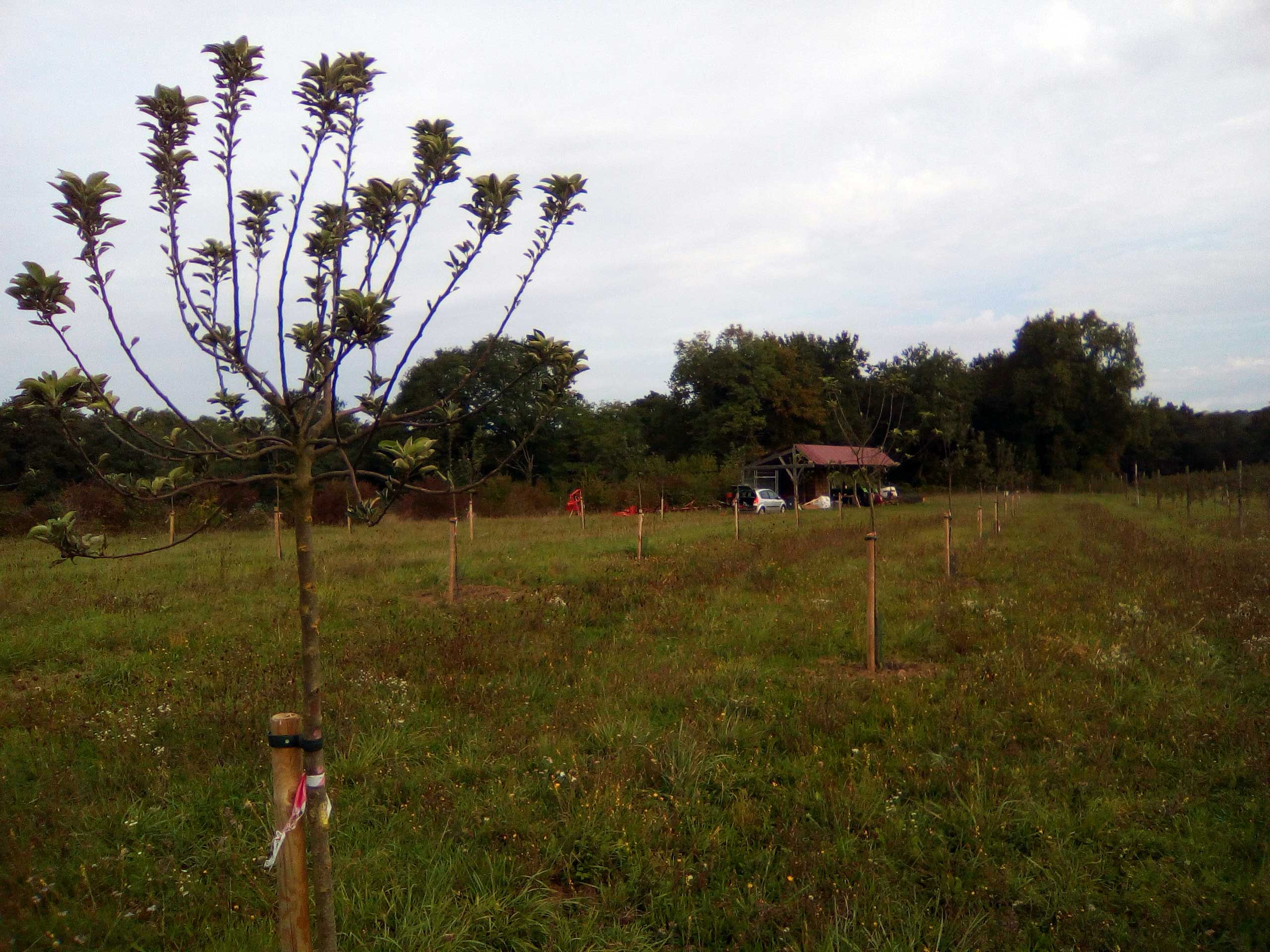
In the Cévennes Biosphere Reserve, the "Les jardins en partage" association is developing a wasteland to make it a garden available to all, with a vegetable garden, an orchard and a bird sanctuary.
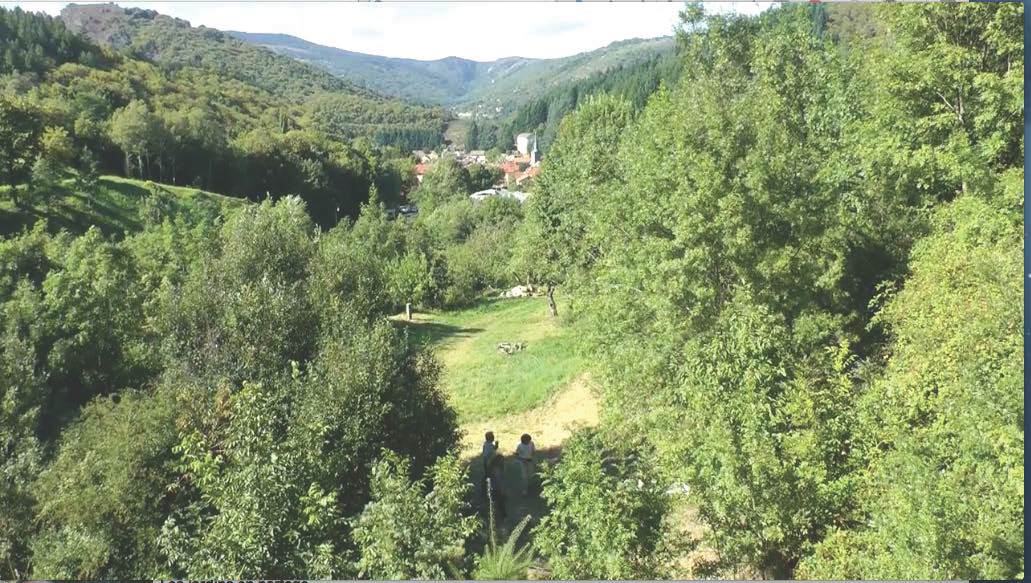
The Ile de Sein Biodiversity Trail is part of an initiative to enhance the natural heritage of the island of Sein for visitors and residents of the island. Its objective is to gather information on geology, flora, fauna, human activities...
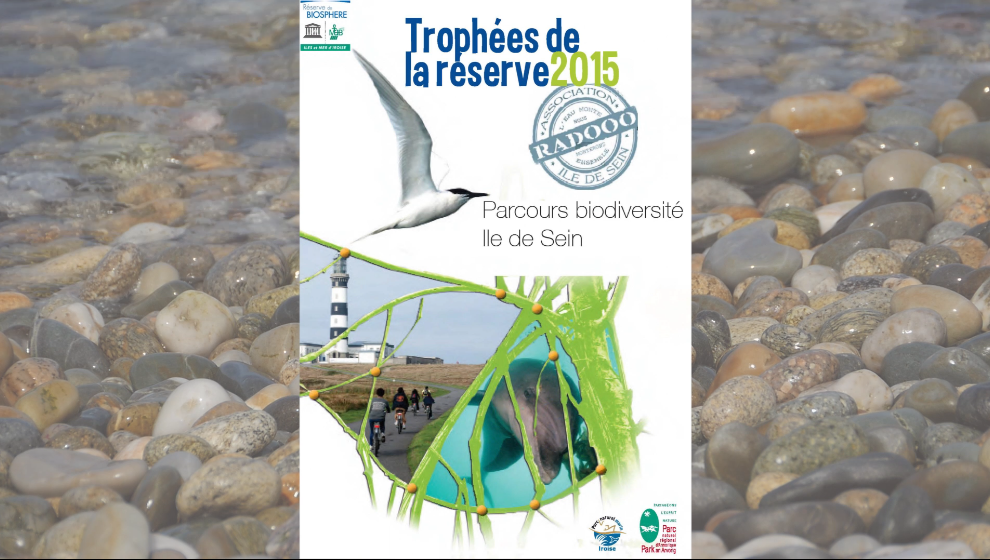
Training days for both professionals and the general public are offered. The Estate will be accessible to people with reduced mobility and access can be by traditional boat. Meals will be prepared by a local chef using local products.
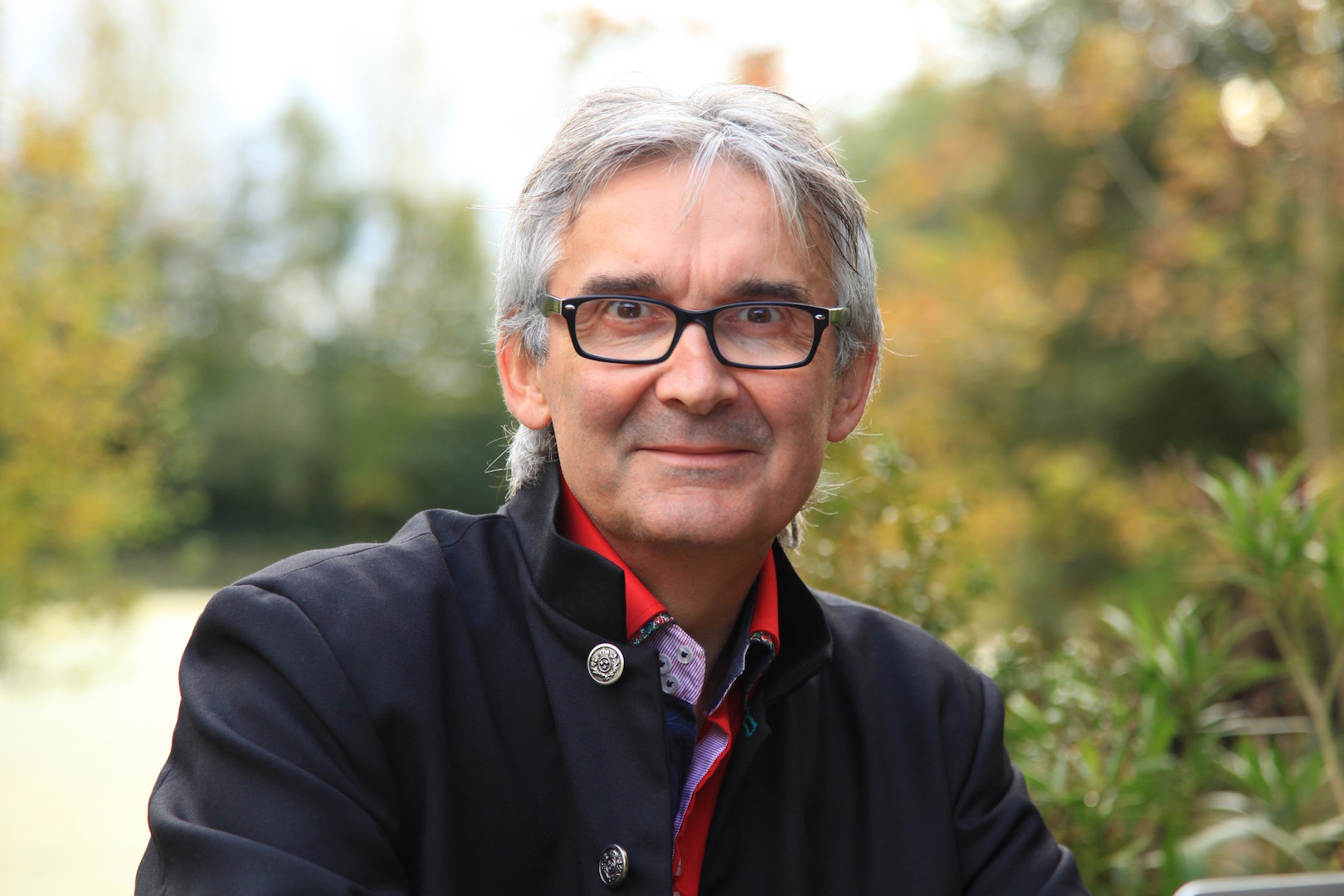 G. Boulnois
G. Boulnois
This is an educational project on solar energy at St Joseph's College in St Ambroix: visits to sites that use solar energy using various processes; study of these processes and the energies obtained; experiments; research into solutions to transform surplus heat energy in electricity; transferability to an African college; study of the installation of a solar water heater for the college....

......of the hamlet of La Sablière.
The restoration of the former terraces of the hamlet of La Sablière, located in the municipality of St-Pierre-des-Tripiers, is being carried out in the heart of the National Park. In the gorges of the Tarn, the construction of terraces on very steep slopes is one of the developments that have enabled man to establish himself there in a sustainable way.
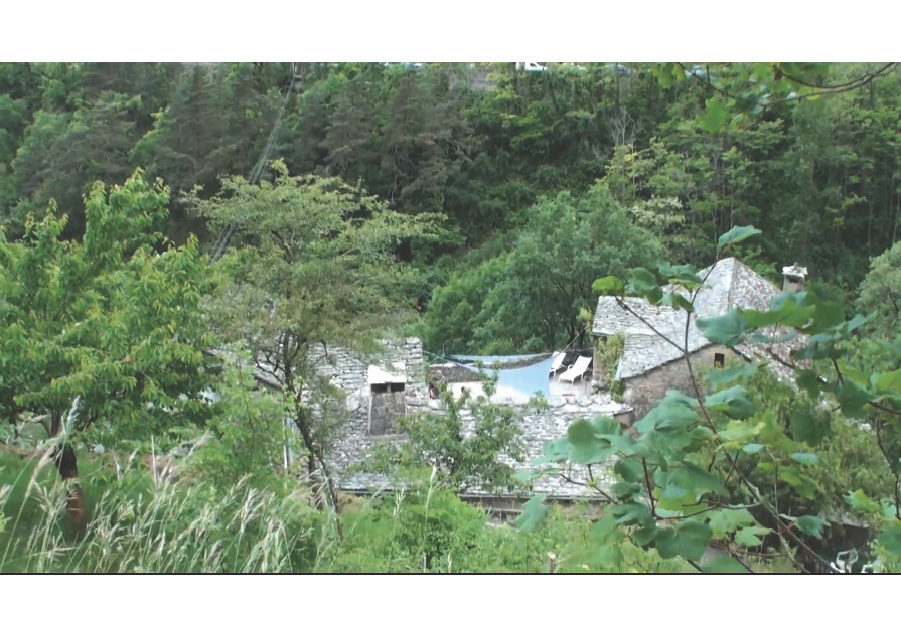 The project therefore has a strong cultural and heritage stake. Once rehabilitated, the terraces will be recultivated and planted with a vineyard, a symbolic culture of the agricultural uses of the past, plants (almond trees, quince trees) and aromatic plants.
The project therefore has a strong cultural and heritage stake. Once rehabilitated, the terraces will be recultivated and planted with a vineyard, a symbolic culture of the agricultural uses of the past, plants (almond trees, quince trees) and aromatic plants.
To restore, on private property, bancels that once formed a vineyard. The property is located in the commune of Bédouès, in the area known as La Baume. The dry stone walls must be restored. Then, a vine of Cévennes grape varieties - Clinton, Baco and Isabelle - and some "country" vine peach trees will be replanted, thus giving life to a local landscape heritage that will benefit the many hikers on the Stevenson trail (GR 70).

Raising awareness in schools and among the general public about the fragility of marine mammals and the need to protect them: production of educational games, comic strips, presentations in schools, exhibitions, training on mammals.
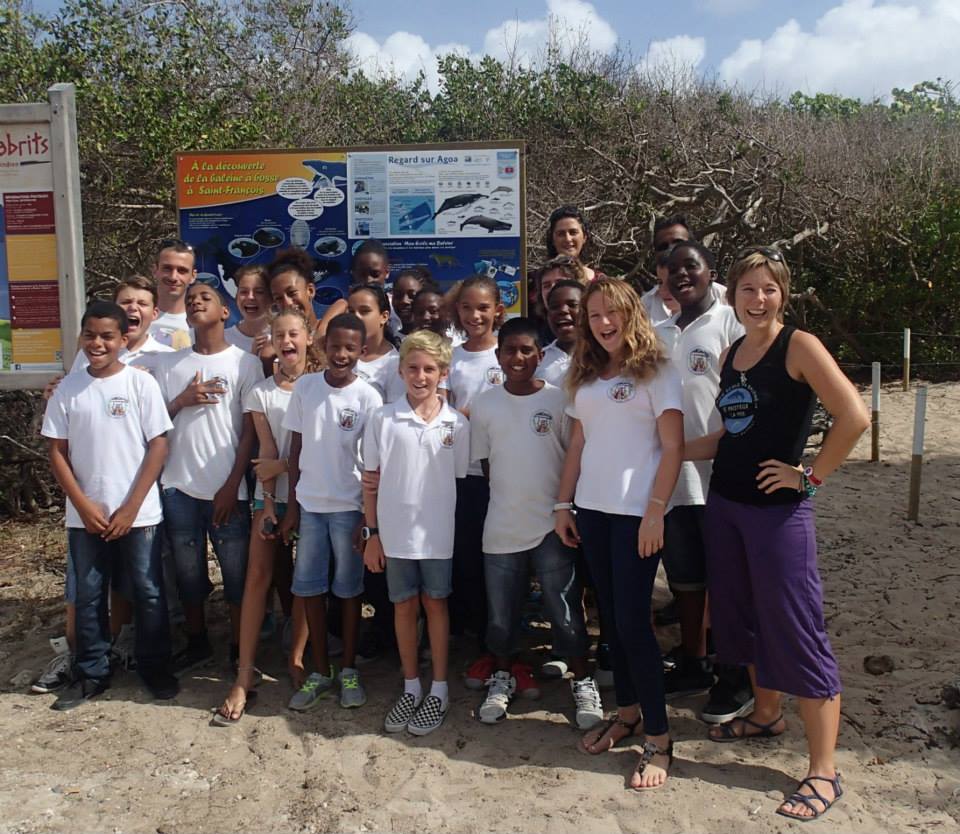
Benoit and Stéphanie Dudognon's workshop manufactures Japanese paper in the Camargue, using locally harvested paper plants, invasive plants or agricultural residues.
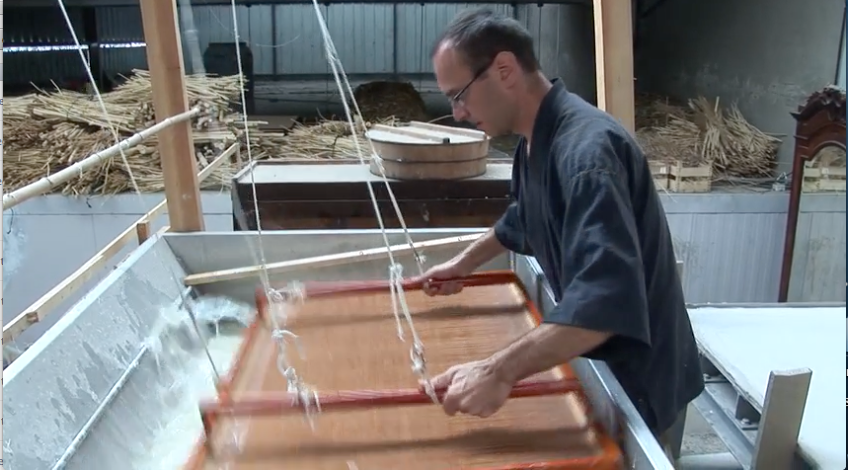
A shadow theatre that accompanies teachers and their classes in the primary schools of the National Park, in the use of shadow theatre as a tool for educational projects on the themes of light and biodiversity. Create scenarios and stories, tell stories, with shadows for characters. Making silhouettes and puppets
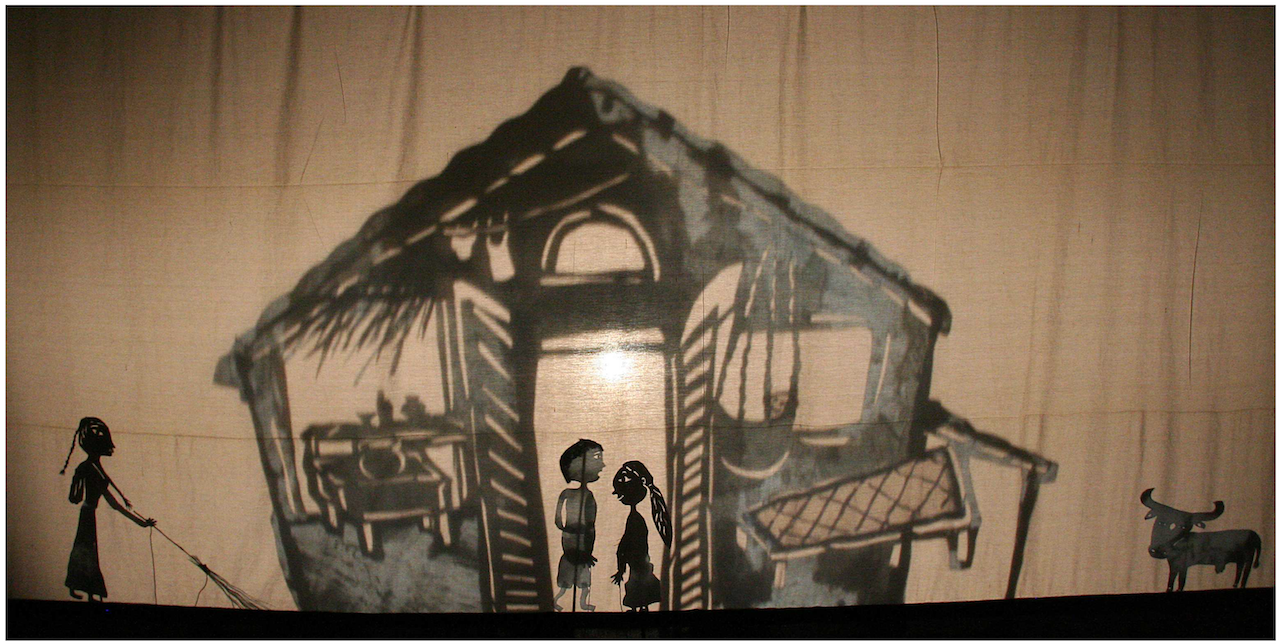
Develop an itinerant organic gardening workshop activity: visit the inhabitants' vegetable gardens, establish with them a diagnosis of their garden, help the owners to develop an action plan for gardening that respects the soil and biodiversity. Creation of a blog site to share this knowledge and encourage exchanges of experience.
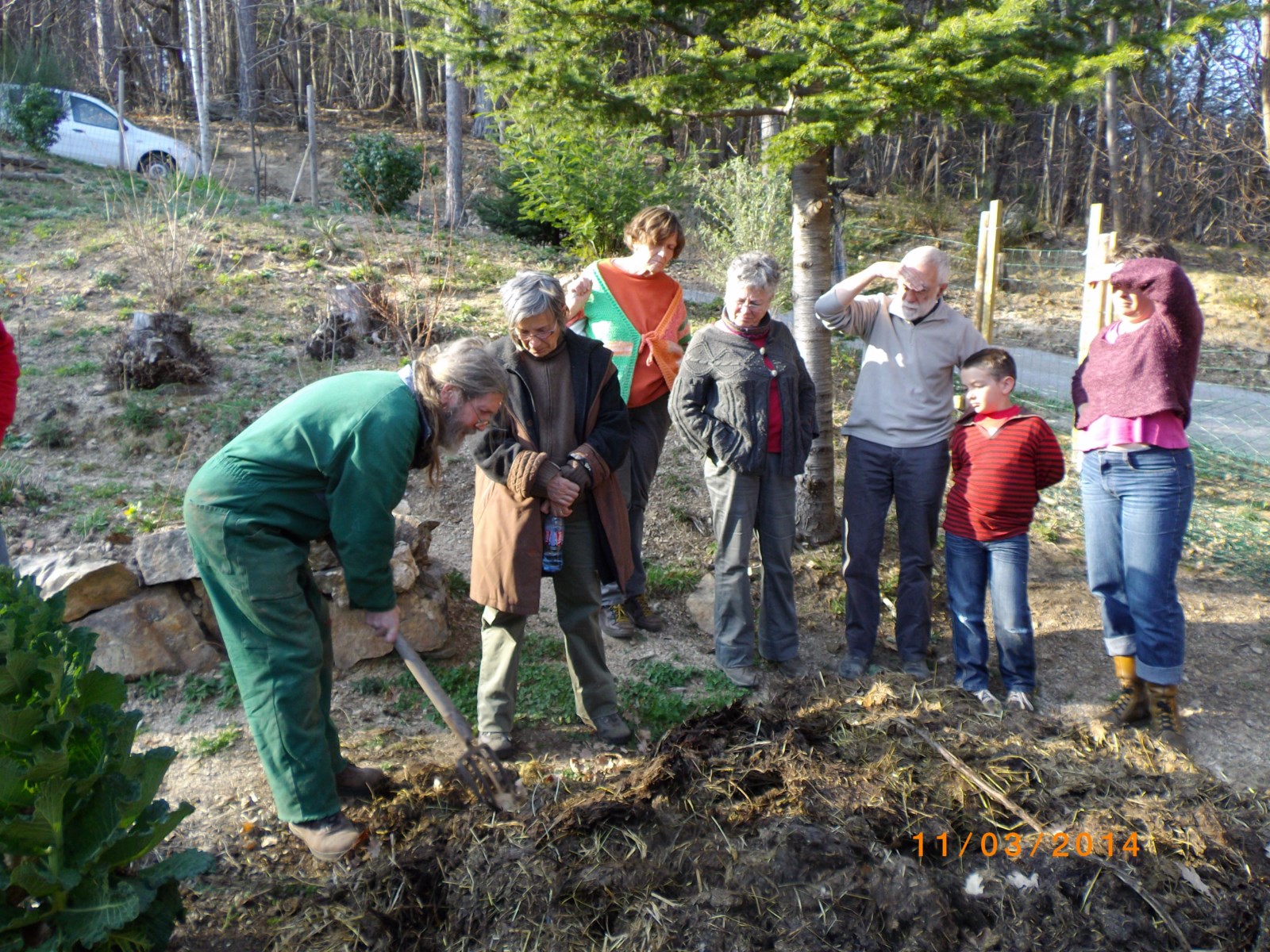
This family farm develops an agricultural activity of organic market gardening and beekeeping, and creates a place of educational and tourist welcome.
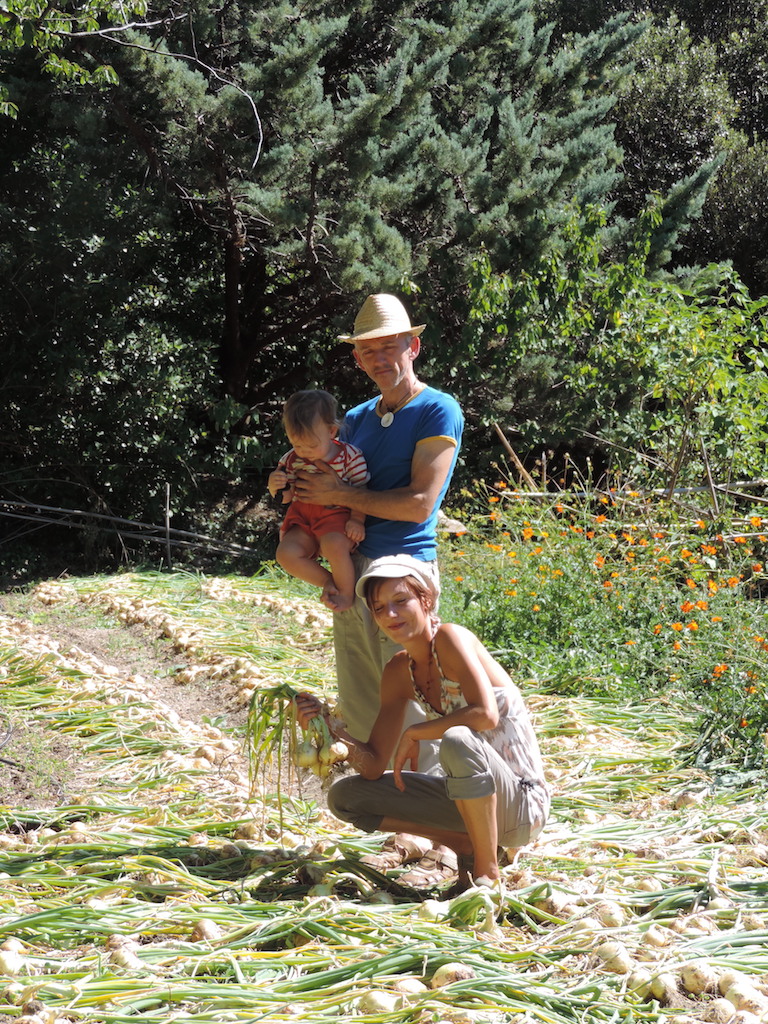
Observe and discover local biodiversity, landscapes, peat bogs, local fauna; contribute to the preservation of this biodiversity in the school: creation of a pond, a butterfly garden, a nesting box, an insect house; inform on actions and results, raise awareness about biodiversity conservation.
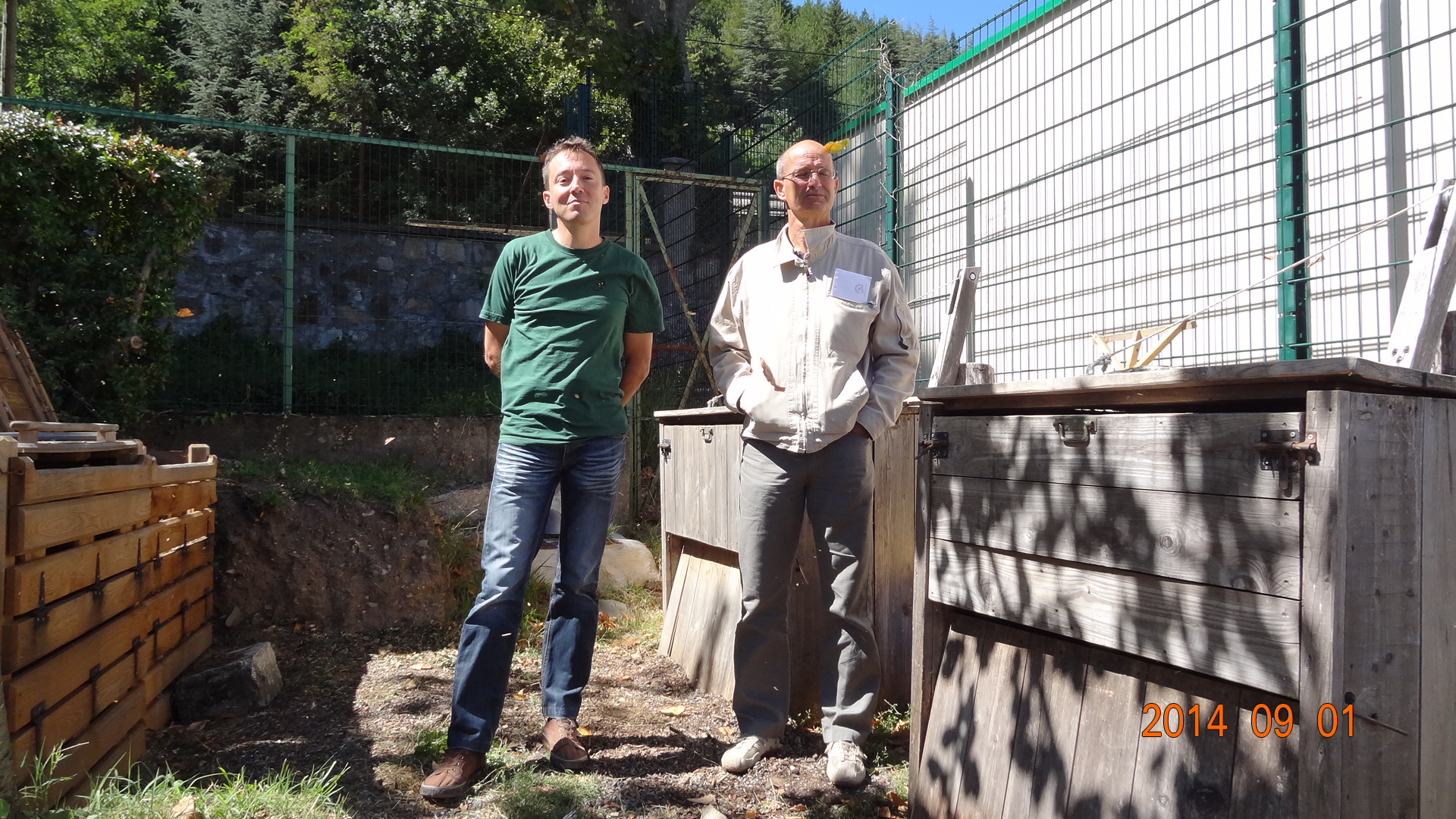
The project of the artist Erik Kinds and the students of the Banon secondary school proposes to create a sculpture garden, a mixture of nature and art.
Guided tours of the garden and sculpture workshops for schoolchildren are also part of this program.
Develop a "parish priest's garden" at the foot of the abbey and monastery of Cendras and create a harmonious space, integrated into the local landscape and history, a place for educational activities, highlighting biodiversity, in particular through the presence of cultivated and wild varieties, and the choice of medieval species
.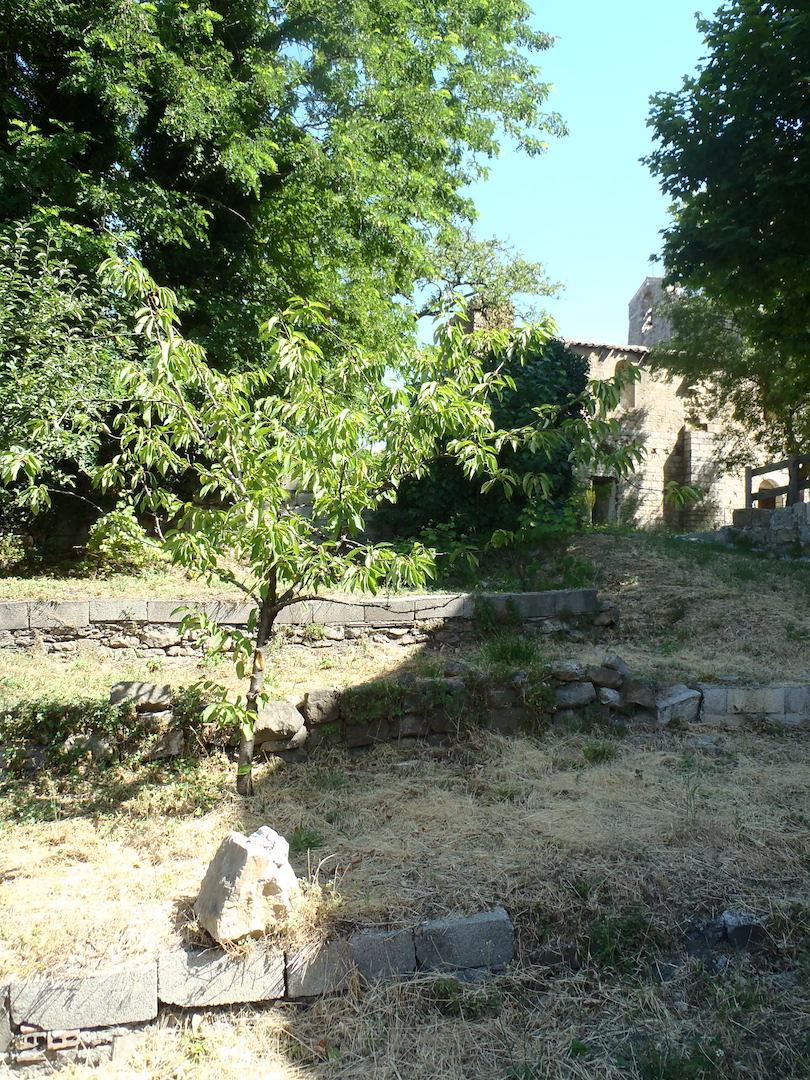
The Mercoire association aims to perpetuate a conservatory orchard of young Mercoire mulberry trees - about a hundred species, including all those cultivated in the Cévennes in the 18th and 19th centuries, and others from all over the world - by creating an associative nursery to develop propagation by cuttings, generate money and preserve threatened biodiversity.
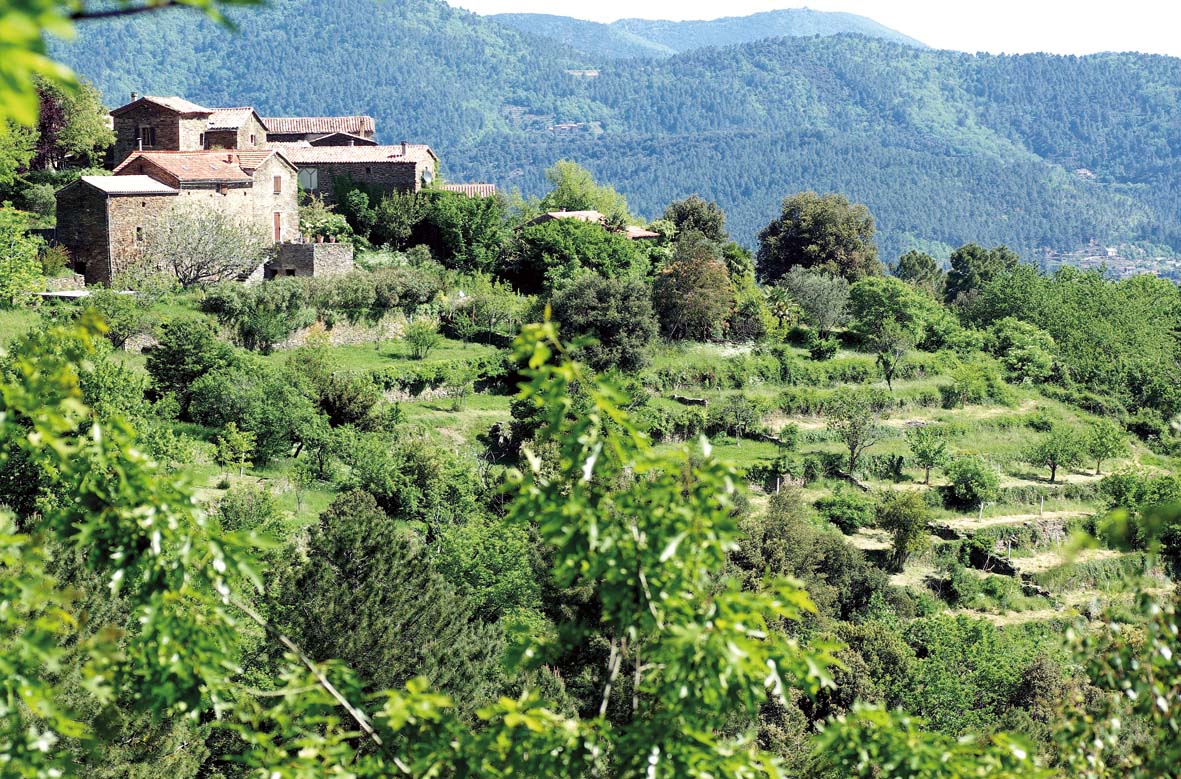
An educational trail allowing as many people as possible to discover a chestnut grove, its biodiversity, the different uses of the tree and fruit, the different states of an orchard, the history of the Cévennes chestnut grove.
The Siloe association aims to promote the maritime, lagoon and river heritage, and to support adults and young people in integration.
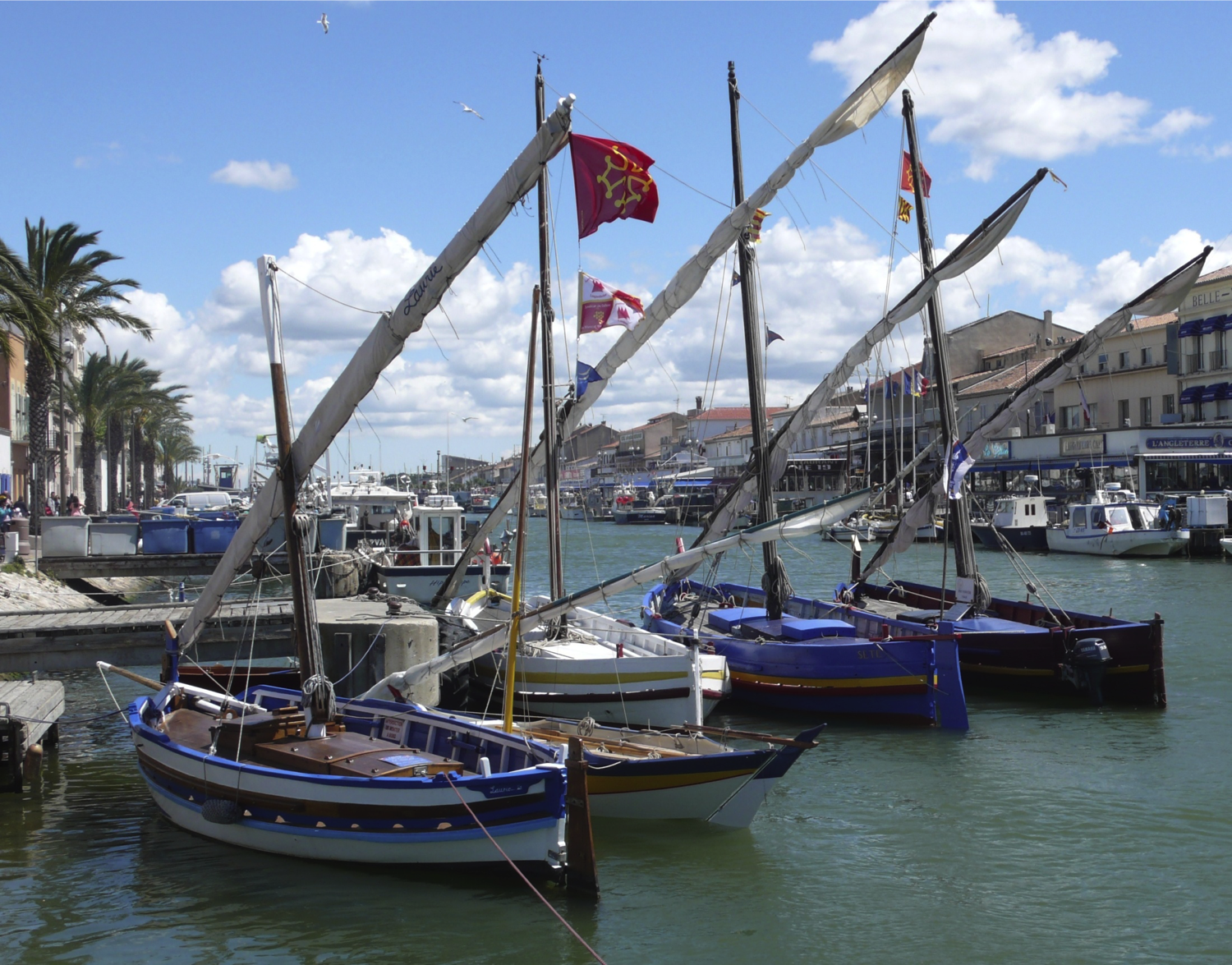
Two actions are proposed: the restoration of a barrel out of the mud in the summer of 2012 and the construction of a flat-bottomed boat.
Cévennes composite manufactures granules and briquettes made of vine shoots and Camargue reeds. The winning project proposes the creation of a transformation platform in Petite Camargue, which contributes to the preservation of marshy environments. Reed is a good agrofuel: 2 tonnes of pellets corresponds to 1000 litres of fuel oil.
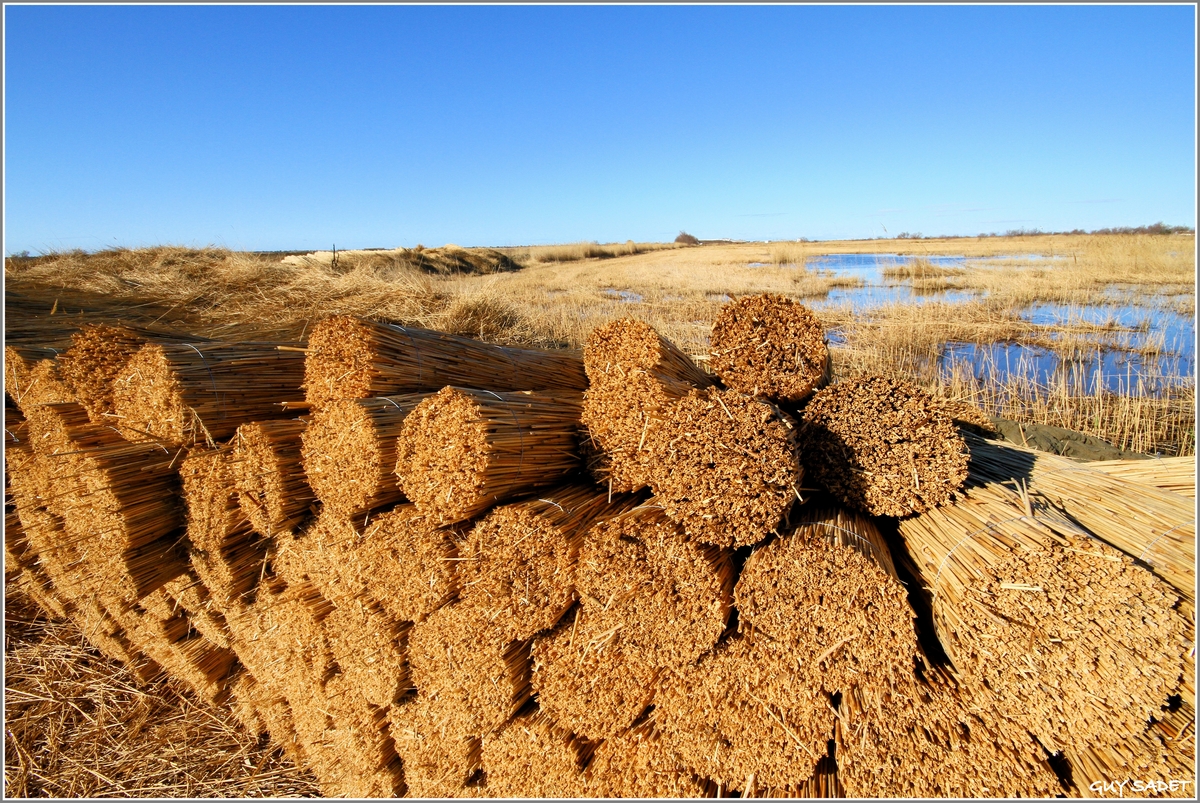
The Deducima association has set up a vegetable plot on a site of the Conservatoire du Littoral, managed by the Vigueirat marshes. The Oasis welcomes all audiences, and makes it possible to organize educational activities to acquire the basics of environmentally friendly farming practices.
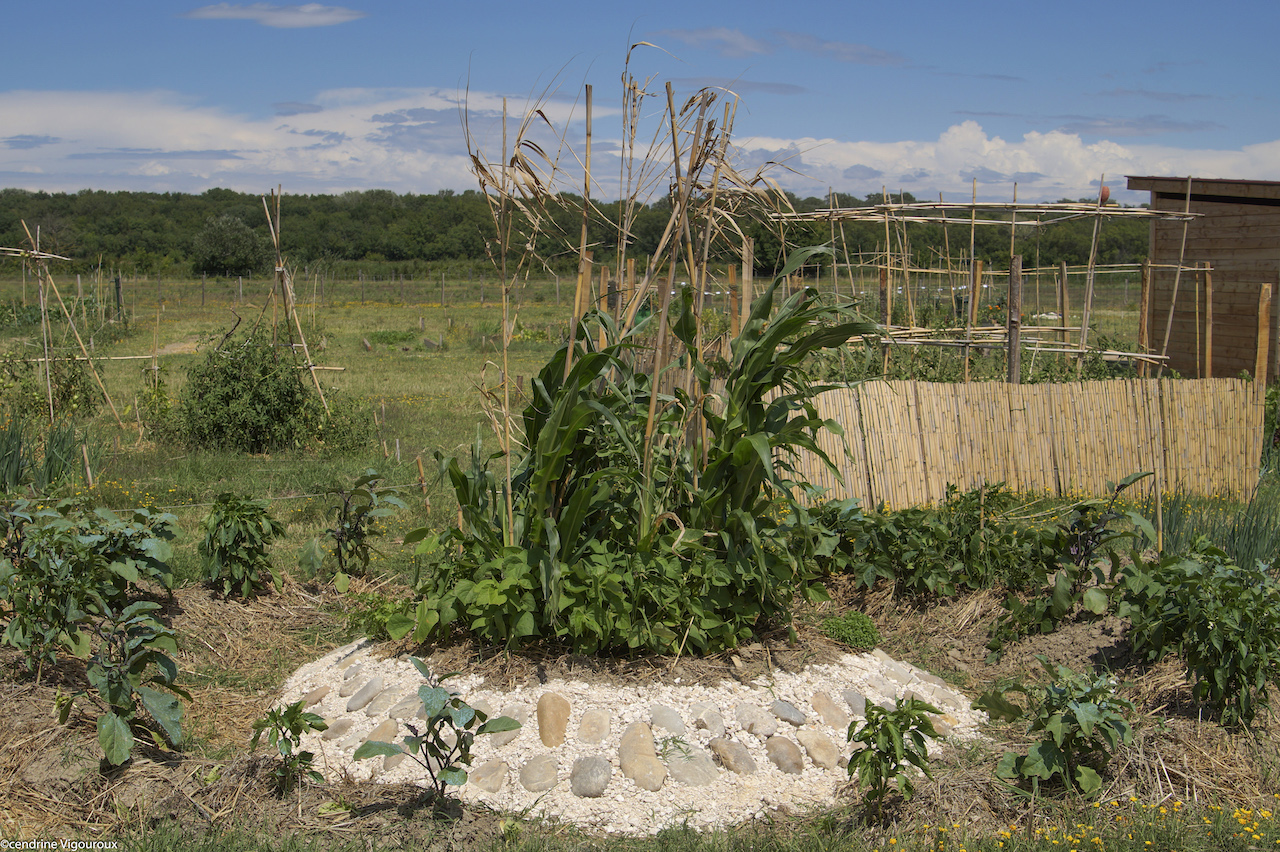
in the community of communes of Petite Camargue.
A "Clean Up Nature" day on the territory of the community of municipalities of Petite Camargue, and enhancement of the traditional activities of Camargue (reeds, gardians) was organized during the day of country heritage and mills, by the network Costières Camargue Authentique.

Use the Camargue horse for therapeutic and rehabilitative purposes for people with disabilities. This project is also aimed at people who are socially maladjusted, excluded, in great difficulty or in the integration phase.
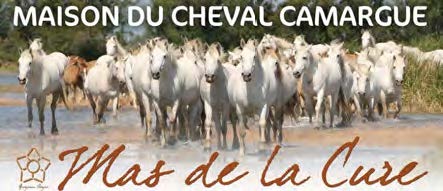
A multi-artistic, educational journey for school children, students and teachers: an investigation linking the Dordogne catchment area with the legend of the dragon Coulobre de Lalinde.
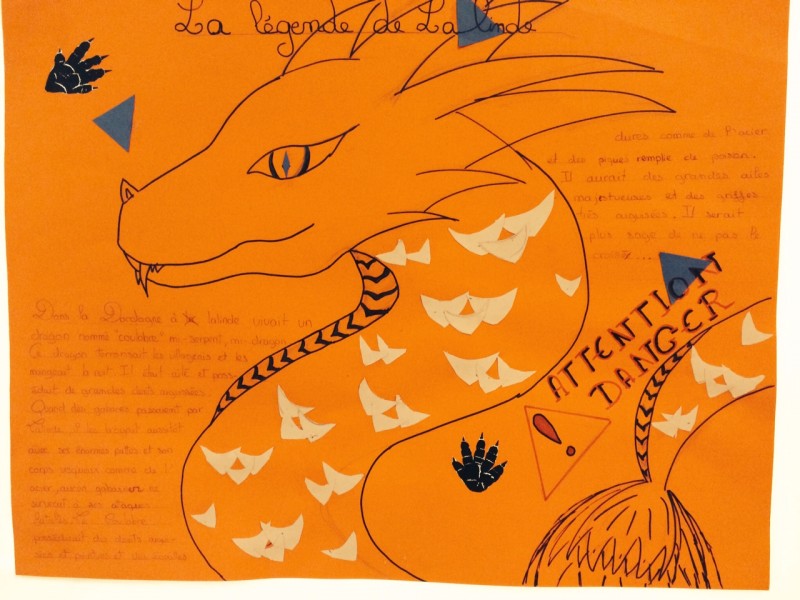
A popular educational project to make training and practice in gardening, composting and healthy eating accessible to all.
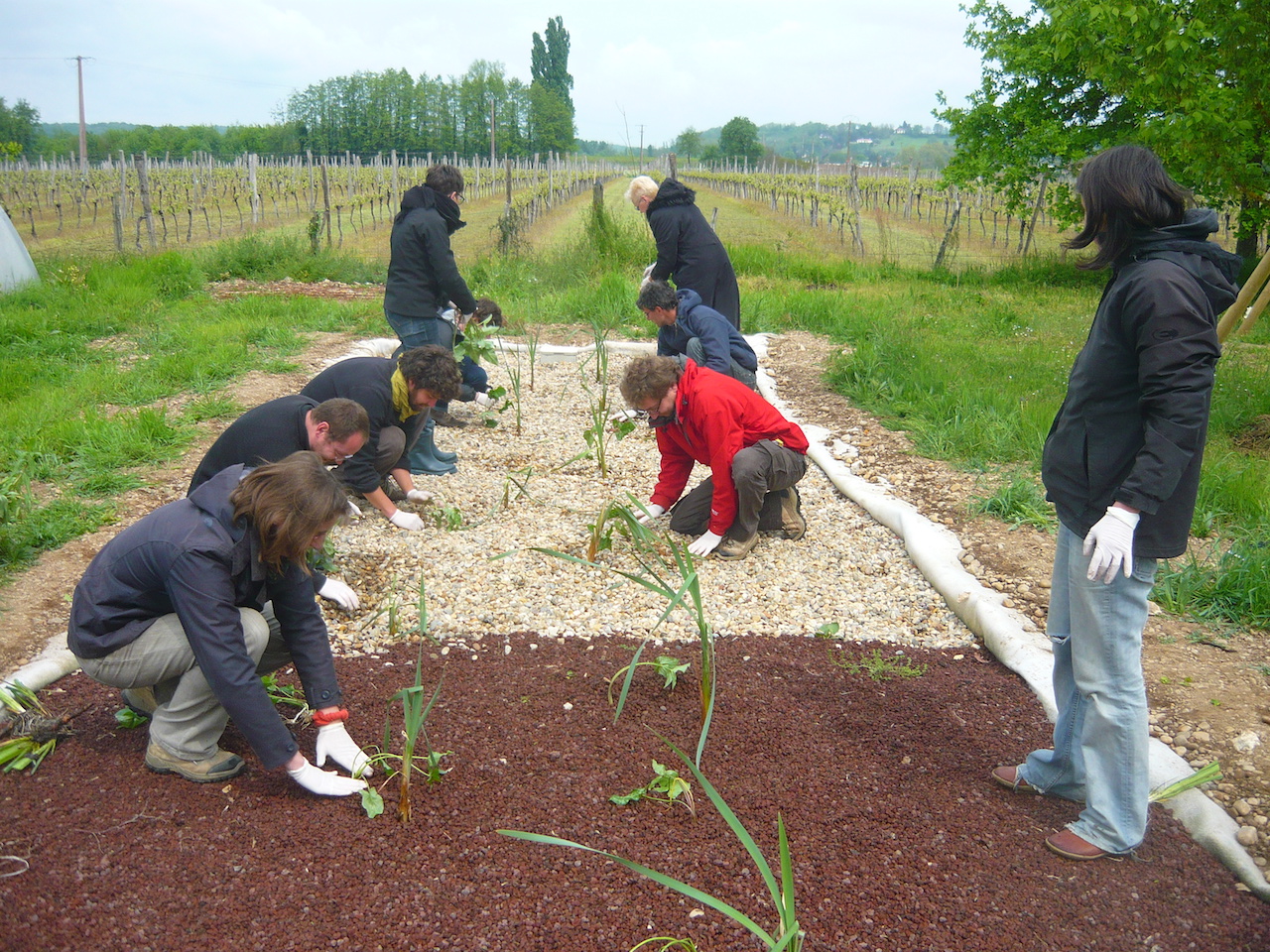 Learn more : Au ras du sol (in French)
Learn more : Au ras du sol (in French)
To promote the Brezou Valley, to encourage understanding and respect for these environments through educational media, and to offer a discovery of the local heritage.
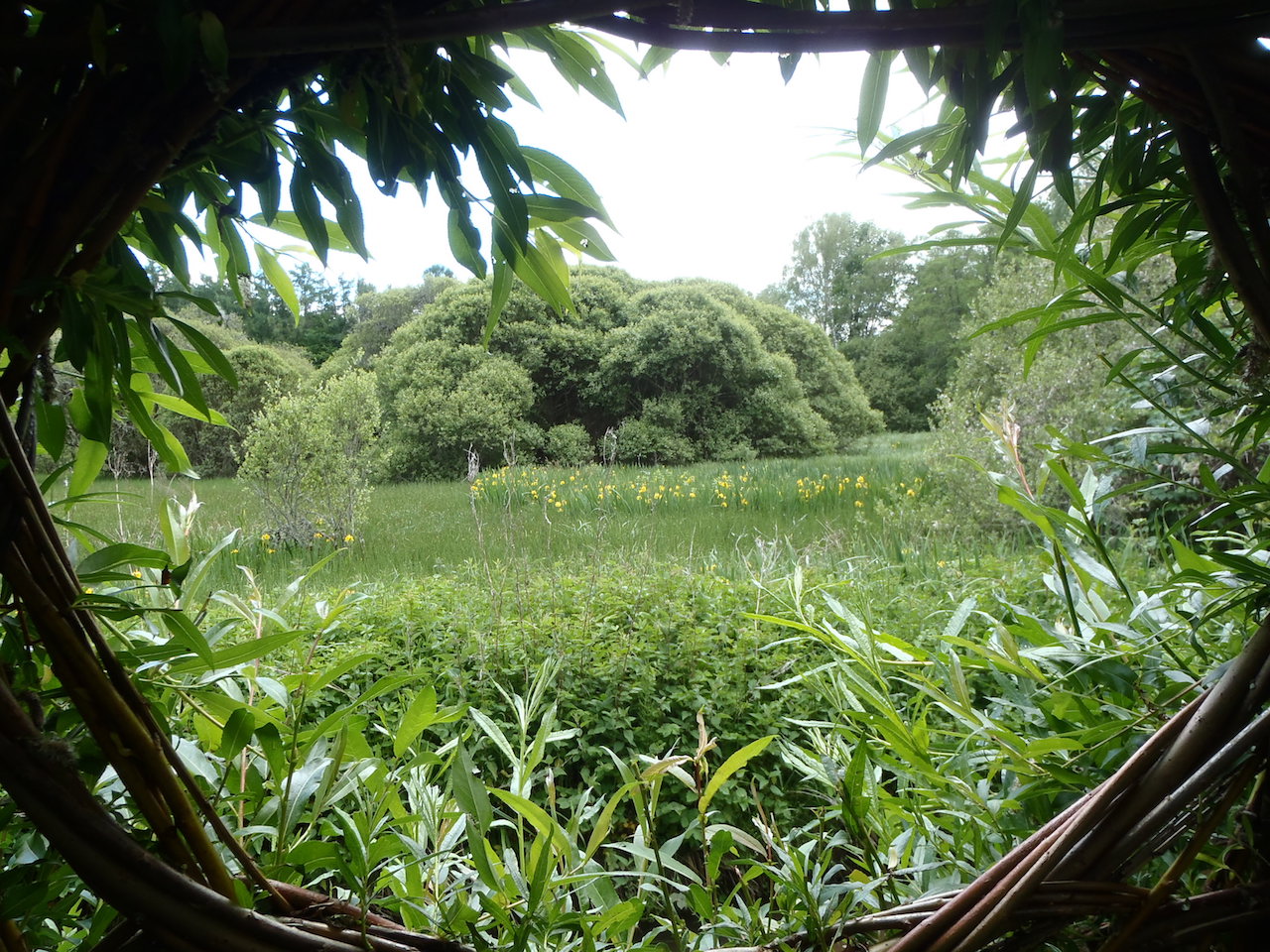
The Dordogne Chamber of Agriculture and the Monbazillac Cellar, in collaboration with the Conservatoire d'Espaces Naturels d'Aquitaine, are committed to supporting winegrowers in the Monbazillac area by trying to identify innovative agricultural practices that are alternatives to the use of insecticides.
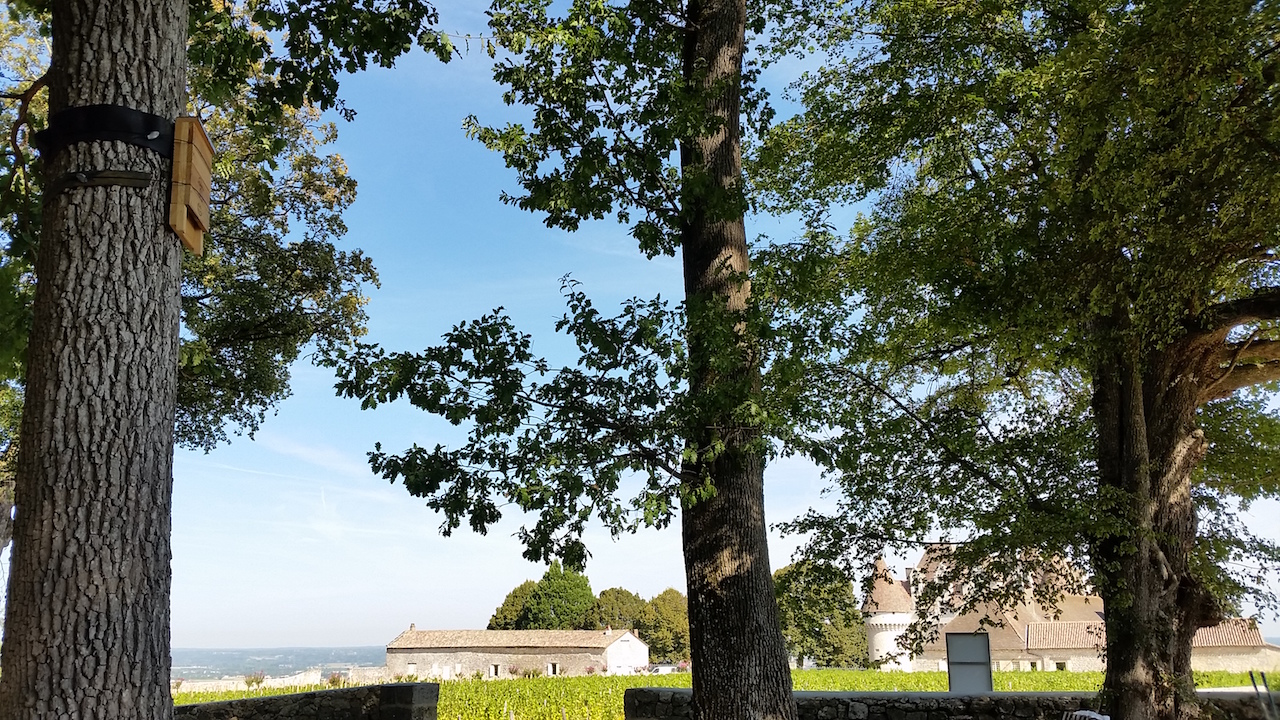
Technical workshops on environmentally friendly farming practices and the production of educational booklets.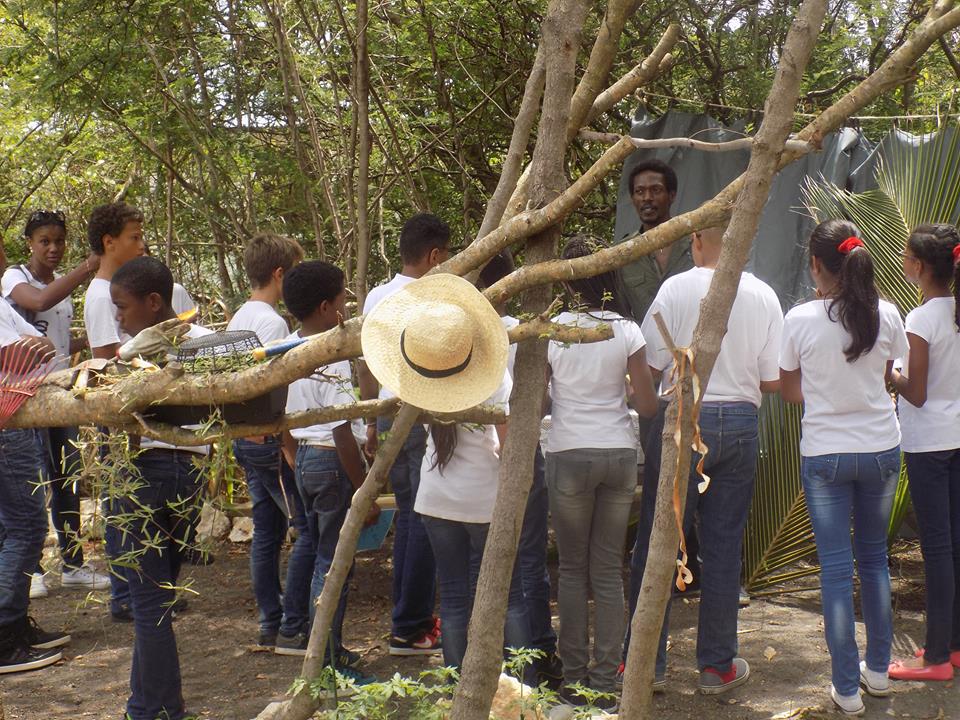
A garden for water, the manatee and everything around it.
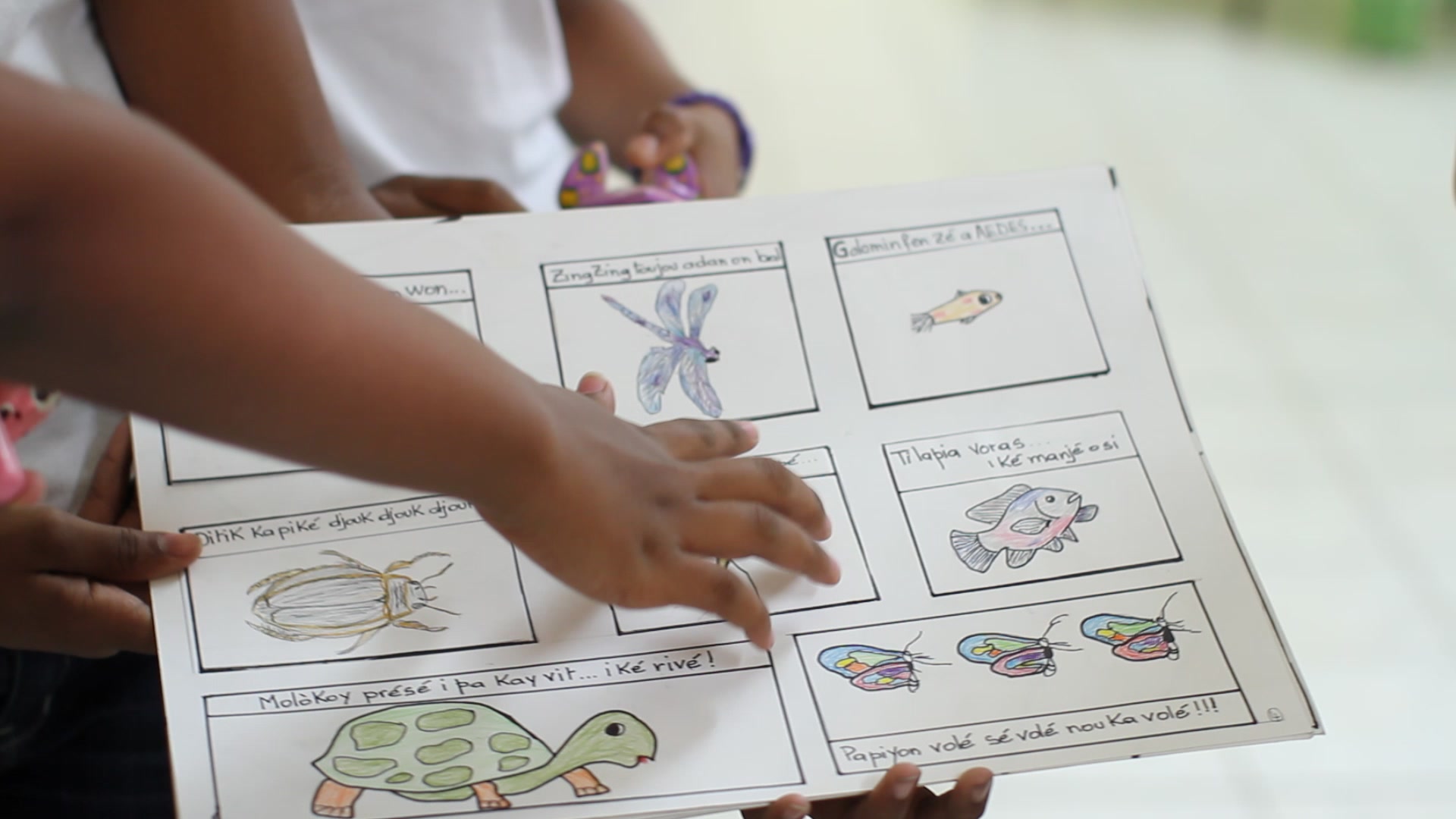 The creation of a garden that takes into account water resources, in order to enhance their value, preserve them, save them, by taking into account an adapted flora, appropriate behaviour (watering, mulching...) and the creation of a comic strip for the youngest.
The creation of a garden that takes into account water resources, in order to enhance their value, preserve them, save them, by taking into account an adapted flora, appropriate behaviour (watering, mulching...) and the creation of a comic strip for the youngest.
An artistic performance to warn about climate refugees
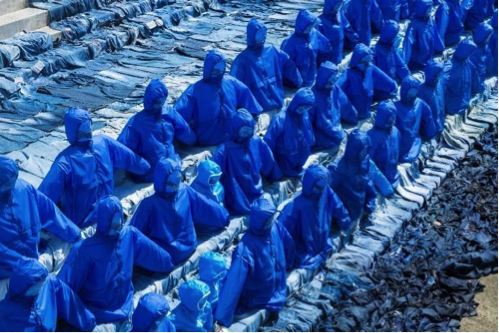
The school children design a guided tour around the school for residents and visitors alike. Guidance is provided by lending MP3 players, whether or not associated with a booklet, or by reading QR-codes in situ with a smartphone referring to short videos made by the pupils themselves. Various themes are covered: dry stone buildings, pastoralism and wool, architectural heritage, rural exodus and paths of ancient times, the Cévennes farmhouse, "gourgues", beehives-trunks.
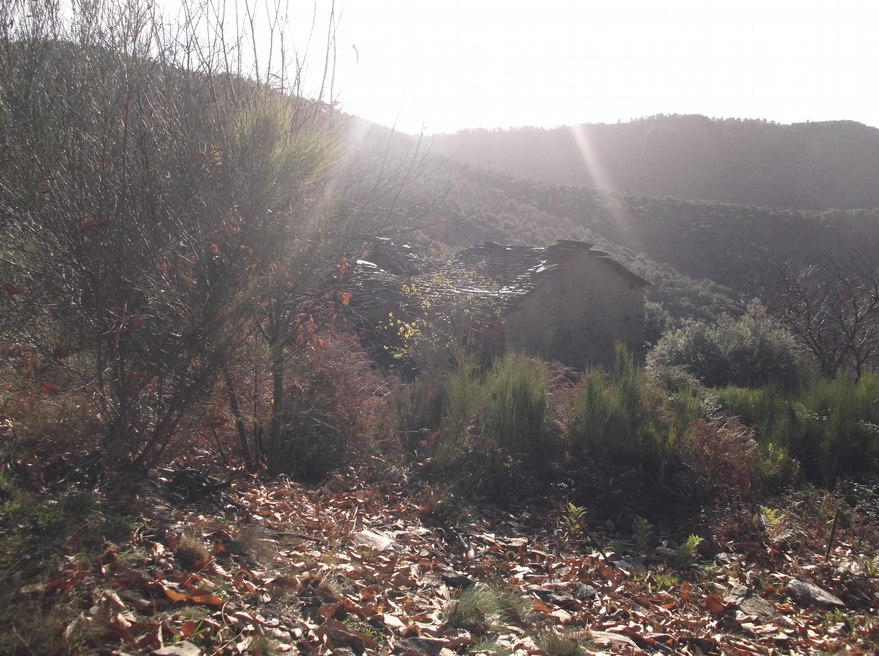
A light pollution awareness device that makes it possible to observe the effects of lighting of various intensities and origins.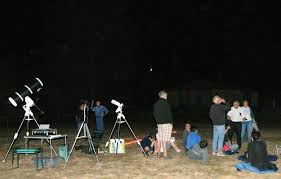
The Meeting in the garden festival is organized by about fifty volunteers. It is a friendly and collective event (creation of social links and collective approach). 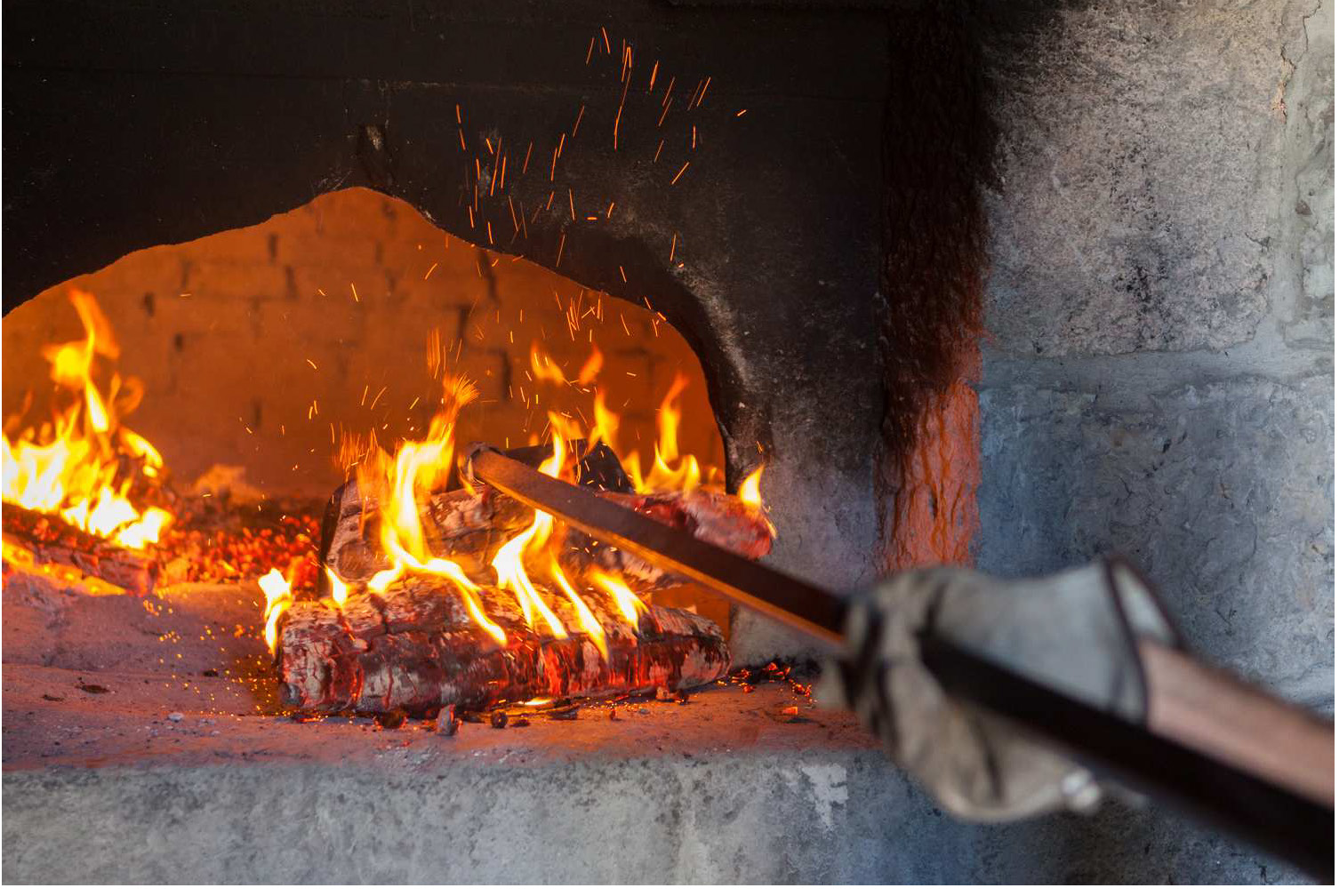 Every year, it highlights the natural or cultural environment of the Valdonnez.
Every year, it highlights the natural or cultural environment of the Valdonnez.
Le Jardin du lien is a beautiful natural area of Quézac, on the banks of the Tarn river, bordered by black poplars. The winning project consists in enhancing the collective actions carried out in the Jardin du lien over the past several years by creating an educational trail allowing visito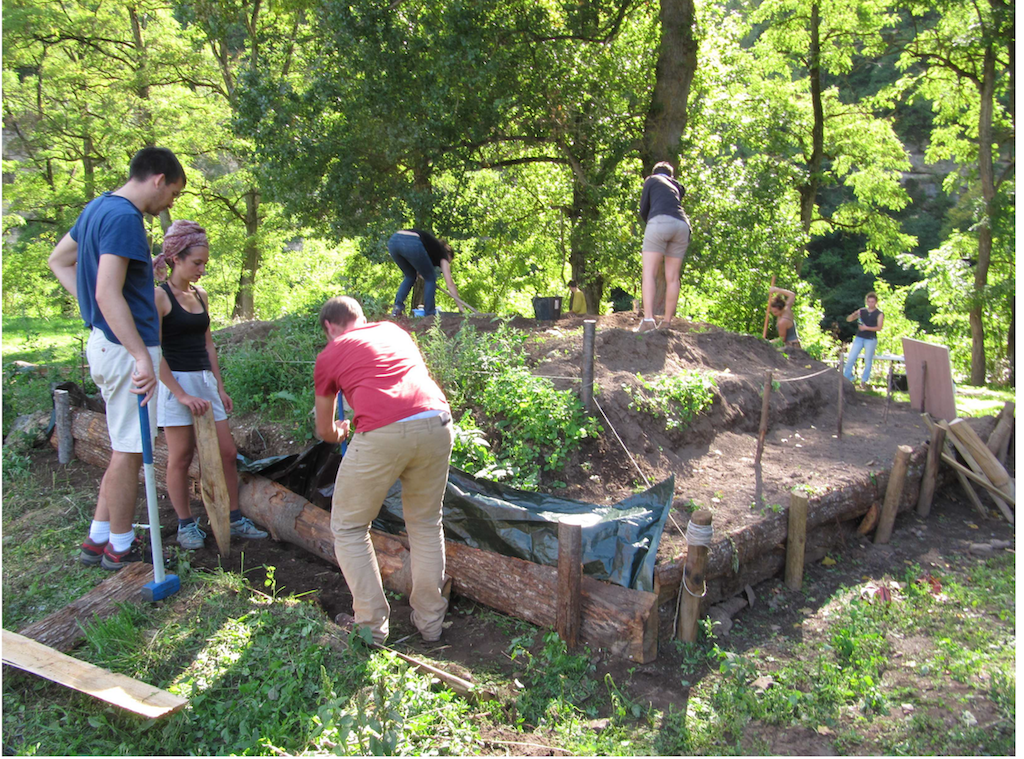 rs to discover this landscape for themselves, thanks to interpretation tools for all audiences.
rs to discover this landscape for themselves, thanks to interpretation tools for all audiences.
A mobile café, on a scooter bike that offers organic and fair trade products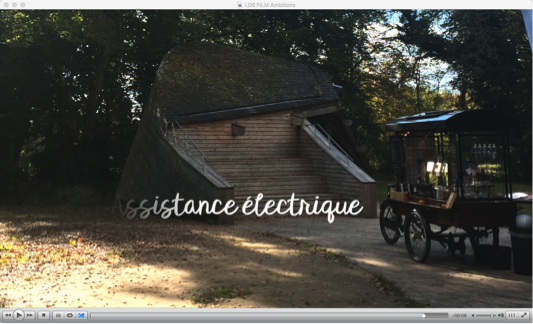
The tourist office of Grand Périgueux is opening a new gateway to the city with the rehabilitation of the Harbour Basin. Between river heritage, marine carpentry, environmental rehabilitation and tourist walks....
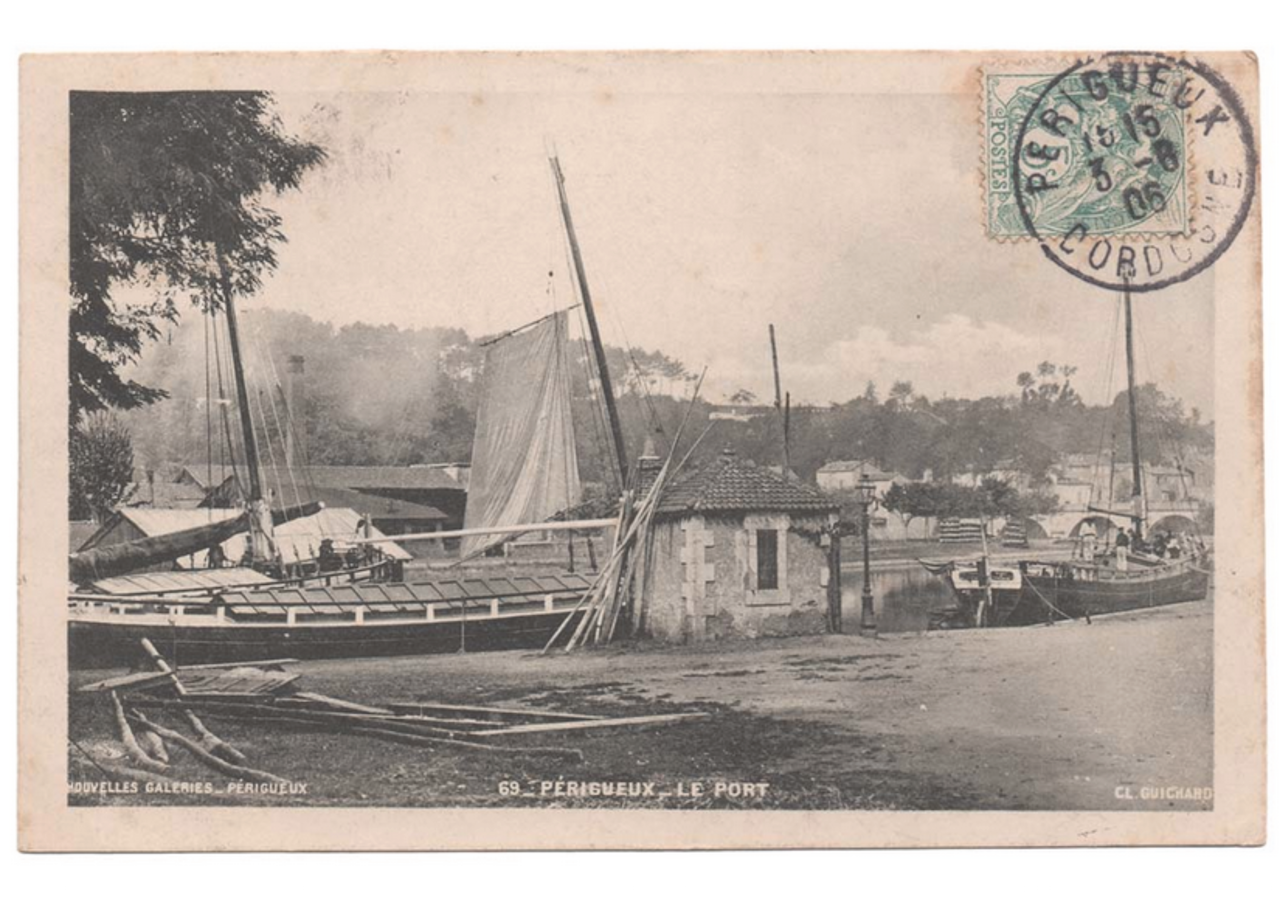
A project to reduce energy consumption: the municipality is committed to.
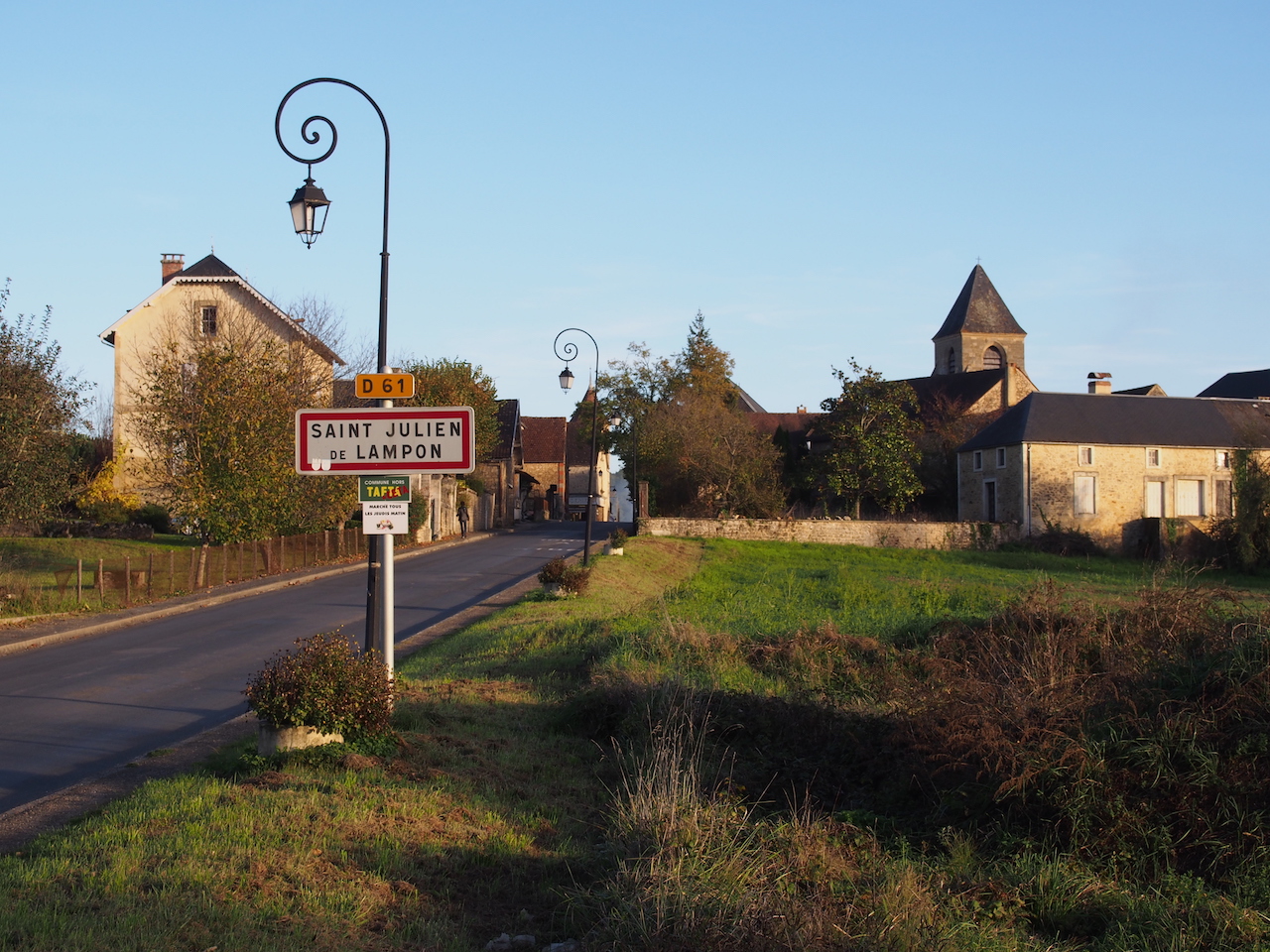
The school of Bédouès - Cocurès participates in this project which aims to recover and bring to life the ecological, social and cultural roles of the village garden.
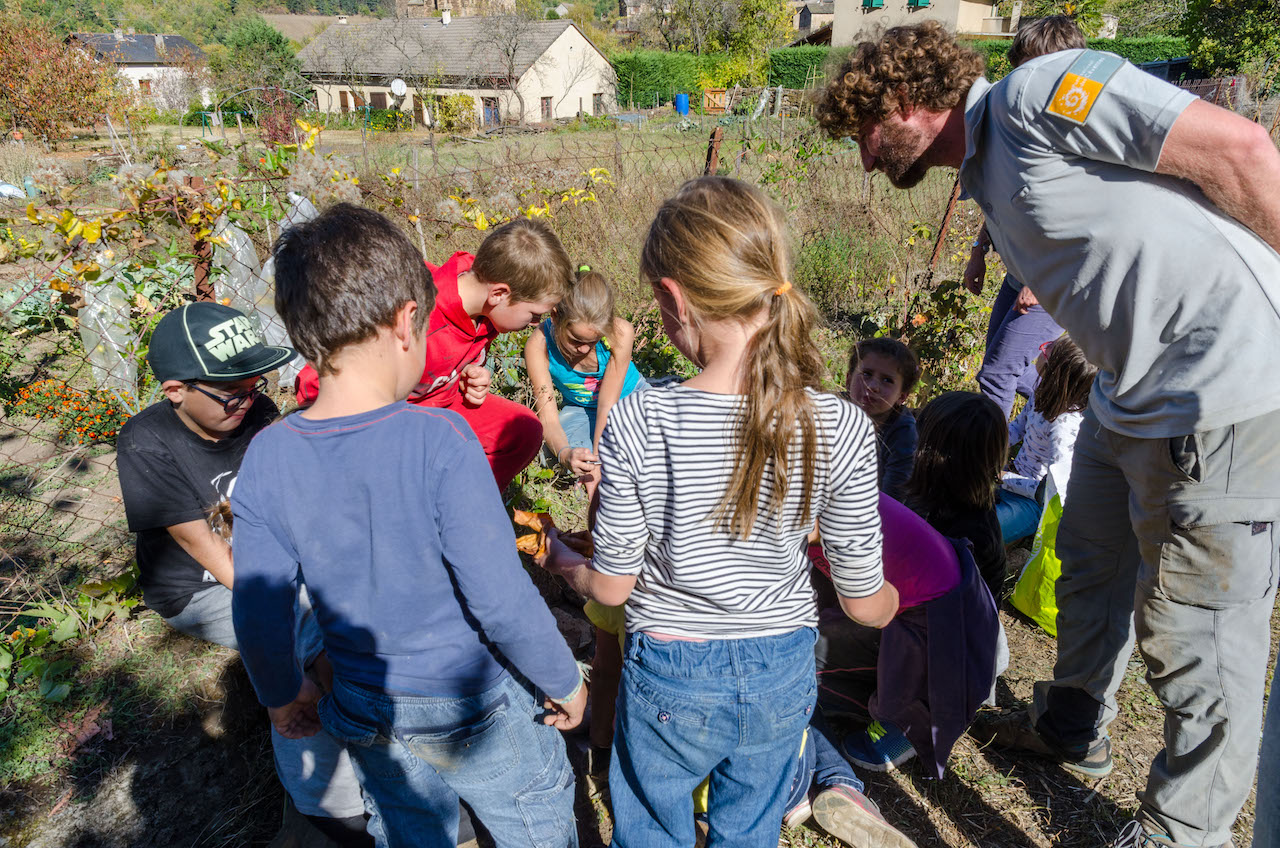 This garden is a space for meeting and transmitting knowledge, where intergenerational know-how is exchanged: it contributes to strengthening social ties in the village.
This garden is a space for meeting and transmitting knowledge, where intergenerational know-how is exchanged: it contributes to strengthening social ties in the village.
The city of Arques has launched a participatory project with the Nord Nature Chico Mendès association on the study of butterflies.
Easy to approach and recognize, they represent an excellent indicator of the quality of our landscapes. The operation consists in carrying out field surveys on the natural areas of the municipality.
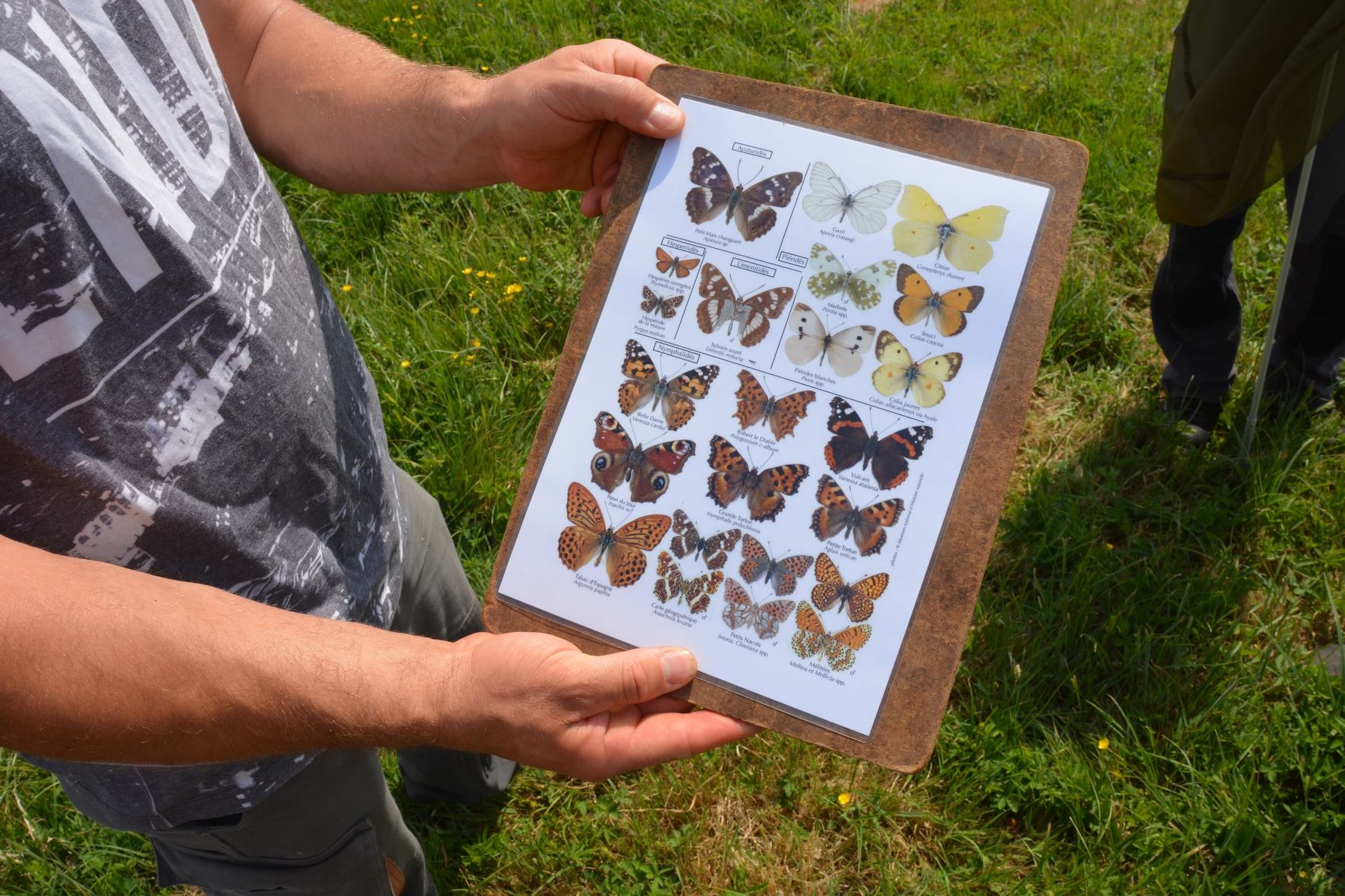 This project has made it possible to start a real dynamic of monitoring and preserving the biodiversity of green spaces. The monitoring will enable the municipality to assess the positive effects of the differentiated management it has been implementing for several years.
This project has made it possible to start a real dynamic of monitoring and preserving the biodiversity of green spaces. The monitoring will enable the municipality to assess the positive effects of the differentiated management it has been implementing for several years.
La Gâtinerie offers the preparation and delivery of meals for communities, businesses and "fragile people".
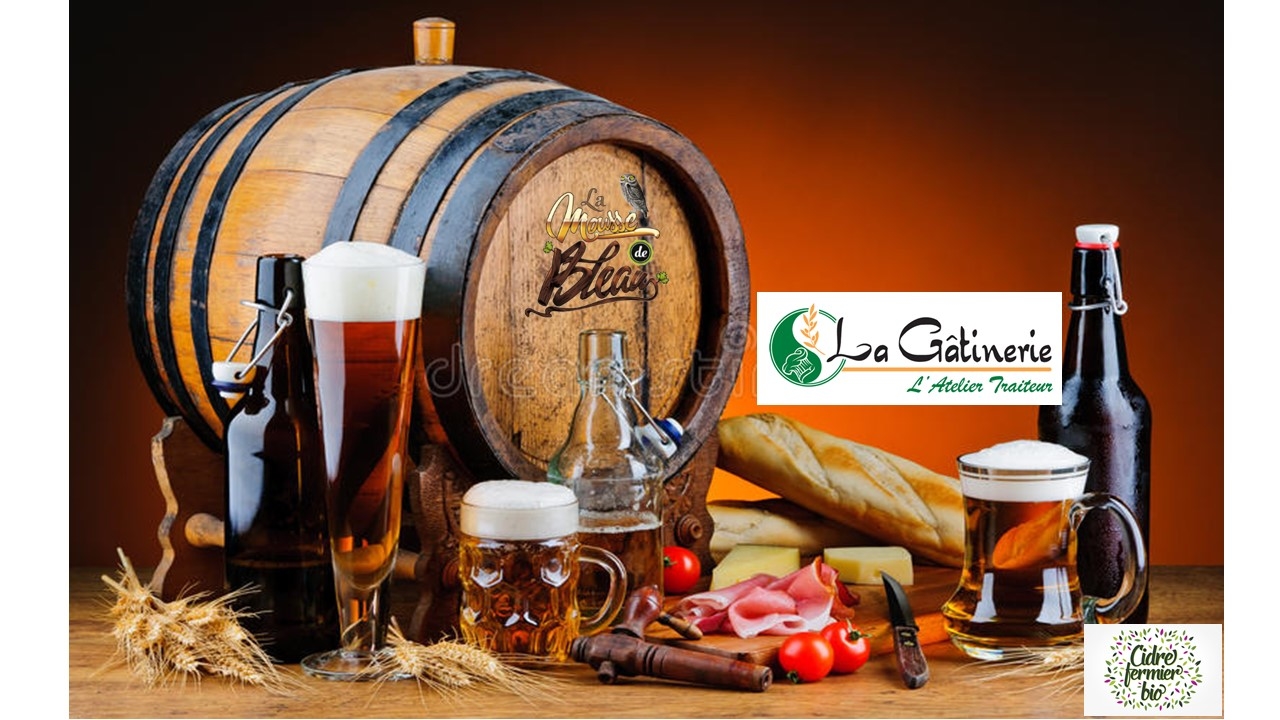 It obtains 80% of its supplies from local producers, with a share of around 30 to 40% of products from organic farming. It has also set up a vegetable canning factory , in partnership with Robert Doisneau high school in Dammarie les Lys.
It obtains 80% of its supplies from local producers, with a share of around 30 to 40% of products from organic farming. It has also set up a vegetable canning factory , in partnership with Robert Doisneau high school in Dammarie les Lys.
The Bacotte donkey farming aims to promote local and responsible agriculture by working in donkey traction for market gardening, in an experimental organic vegetable garden. A donkey garden for educational purposes has been created.
A carpooling system backed by a local currency.
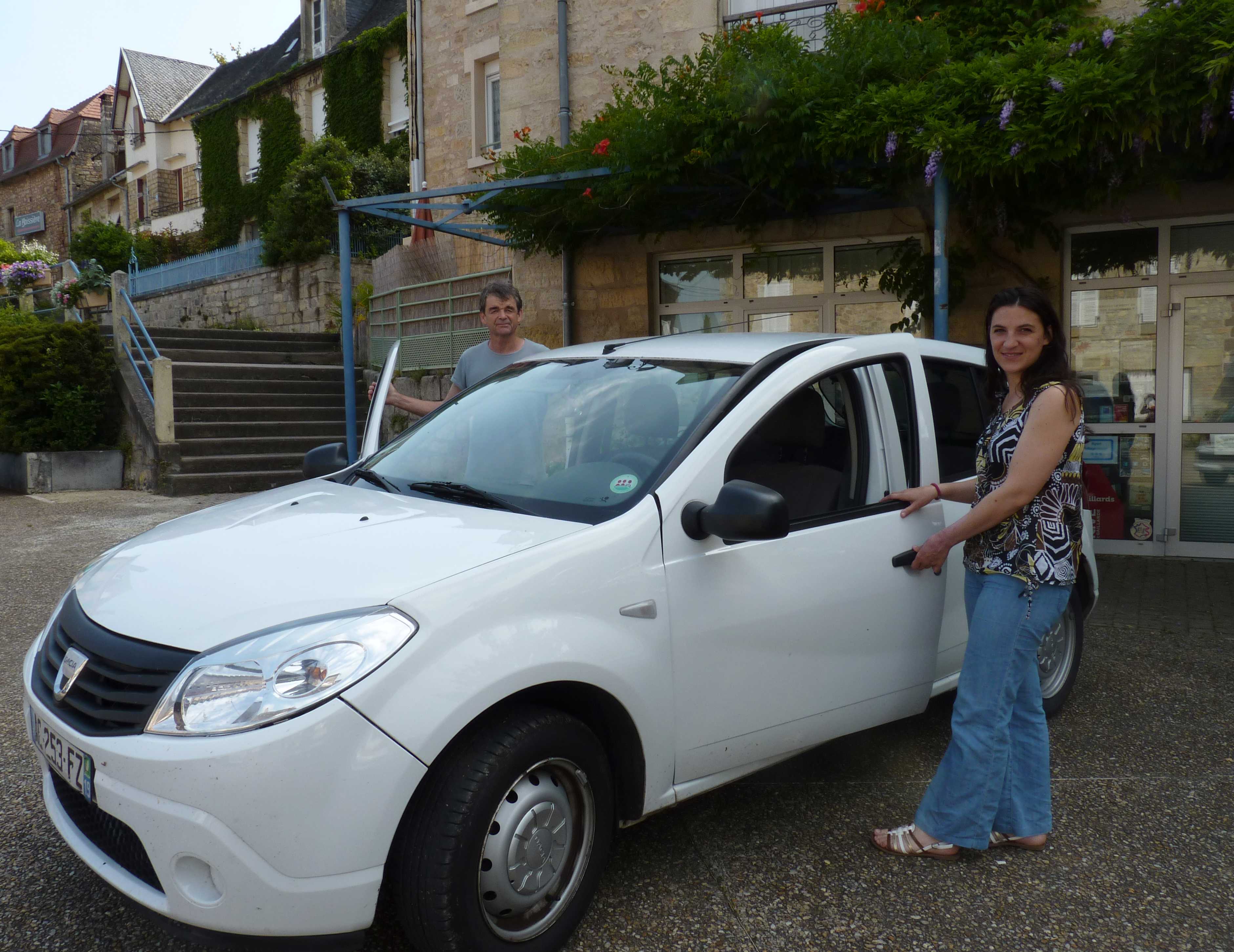 Ecosyst'm is a Carpooling system for short distance journeys set up in the territory of the municipality of Ayen and extended to 7 other neighbouring municipalities.
Ecosyst'm is a Carpooling system for short distance journeys set up in the territory of the municipality of Ayen and extended to 7 other neighbouring municipalities.
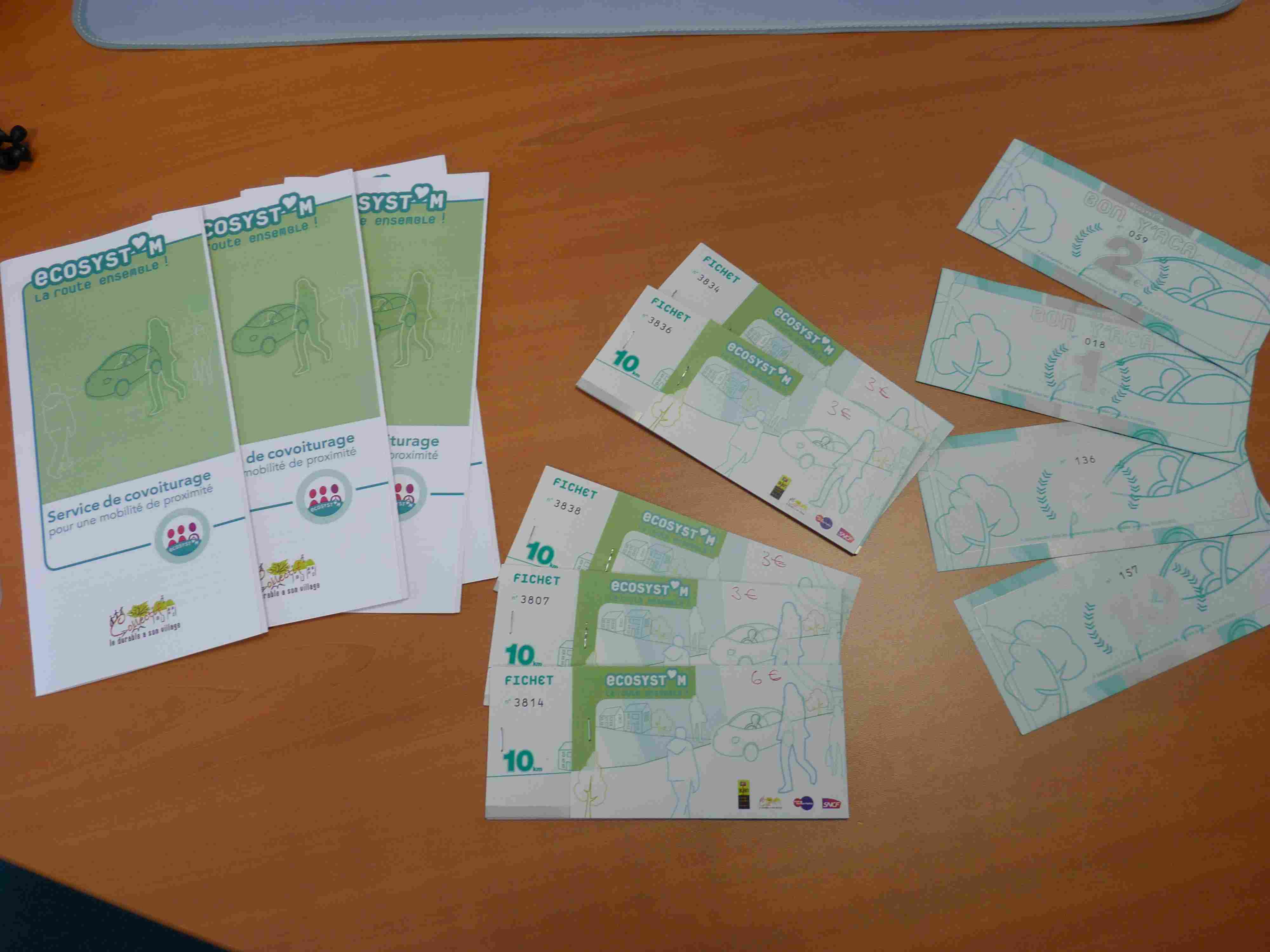
A local currency, the Y'ACA, is backed by this project, thus avoiding any financial transactions between users.
The Garrigues corporate has been involved since 2015 in the issue of pastoralism in the scrubland through the Pasto'Garrigues project. The objective is to understand the challenges of pastoralism on the garrigue territory, to connect the actors involved and to encourage the installation of new herds.
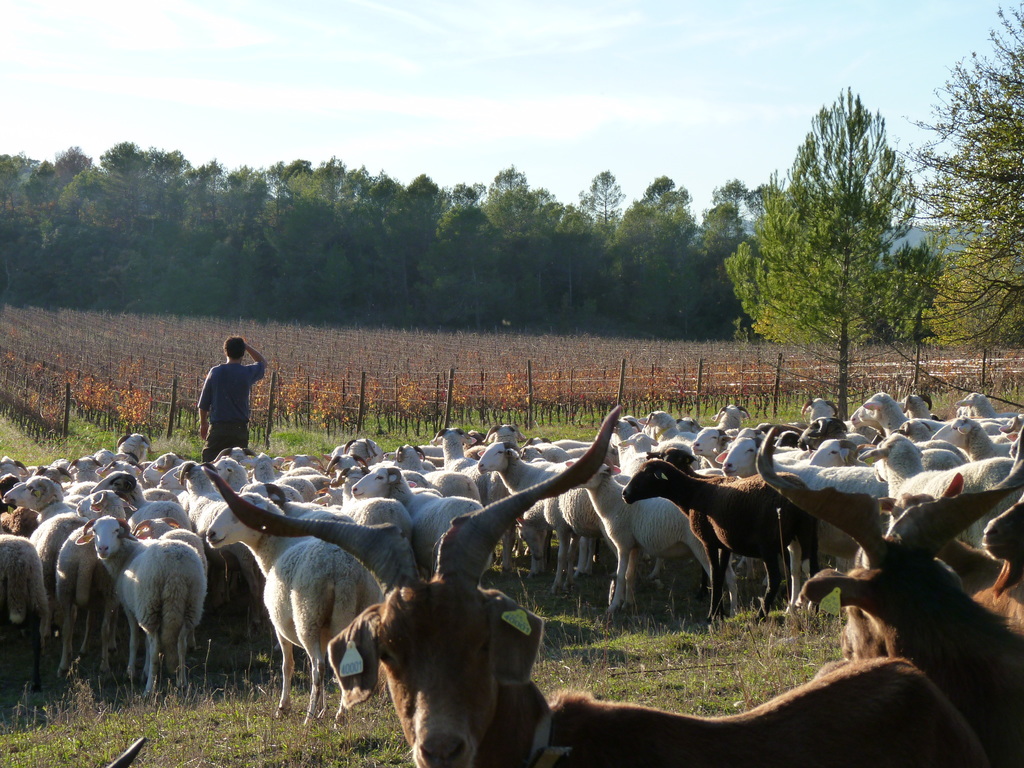
An introduction to sled driving in the Fontainebleau forest, accessible to people with limited mobility.

The municipality of Ayen, in Corrèze, has undertaken a transversal action in favour of the zero-pesticide through the acceptance of spontaneous vegetation in the city, mobilization and citizen involvement in this project.
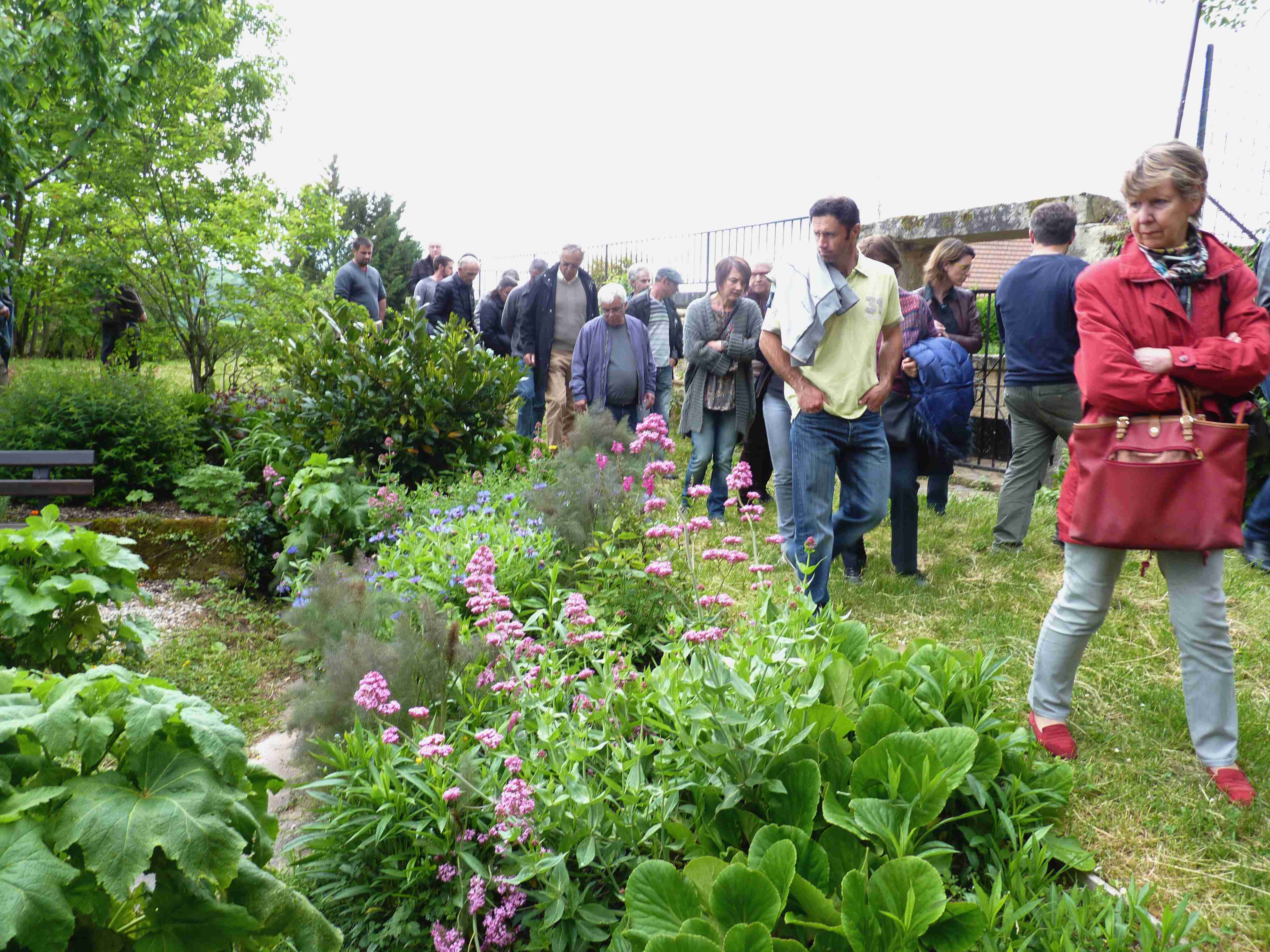
Since 2010, no phytosanitary products have been used in all the common areas of the municipality.
The municipality of Saint Bonnet les Tours de Merle is carrying out an exemplary and innovative action to rehabilitate its cemetery as part of a civic project.
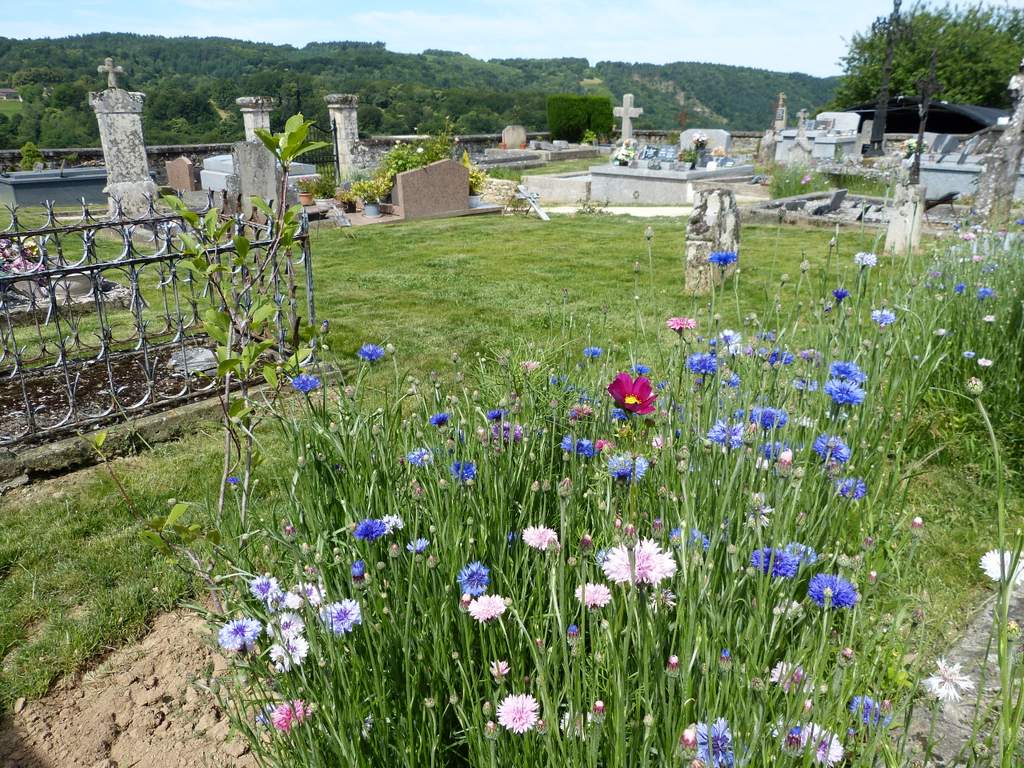
Inaugurated in 2015, the landscaped cemetery was entirely built on a voluntary basis by the population of the municipality.
Chroniques végétales is a mini-series of 10 episodes of 3 minutes and 30 seconds each, devoted to the history and virtues of the plants that surround us. Each episode tells about a plant, through a historical and scientific anecdote, its medicinal virtues, how and in what context it lives.

The first episodes of the series are already online : Arte
The association Le Largue et les Zamars organizes citizens' days bringing together people and associations committed to the protection of the environment and local heritage. In this way, it wishes to inform and involve local populations in collective actions such as site clean-up, waste removal, etc.
This year, Grandeur nature is celebrating the 5th anniversary of the Savoillans Environmental Art Trail. Seven artists in residence have or will create works on the theme of Man's relationship with nature that will be exhibited on the trail.
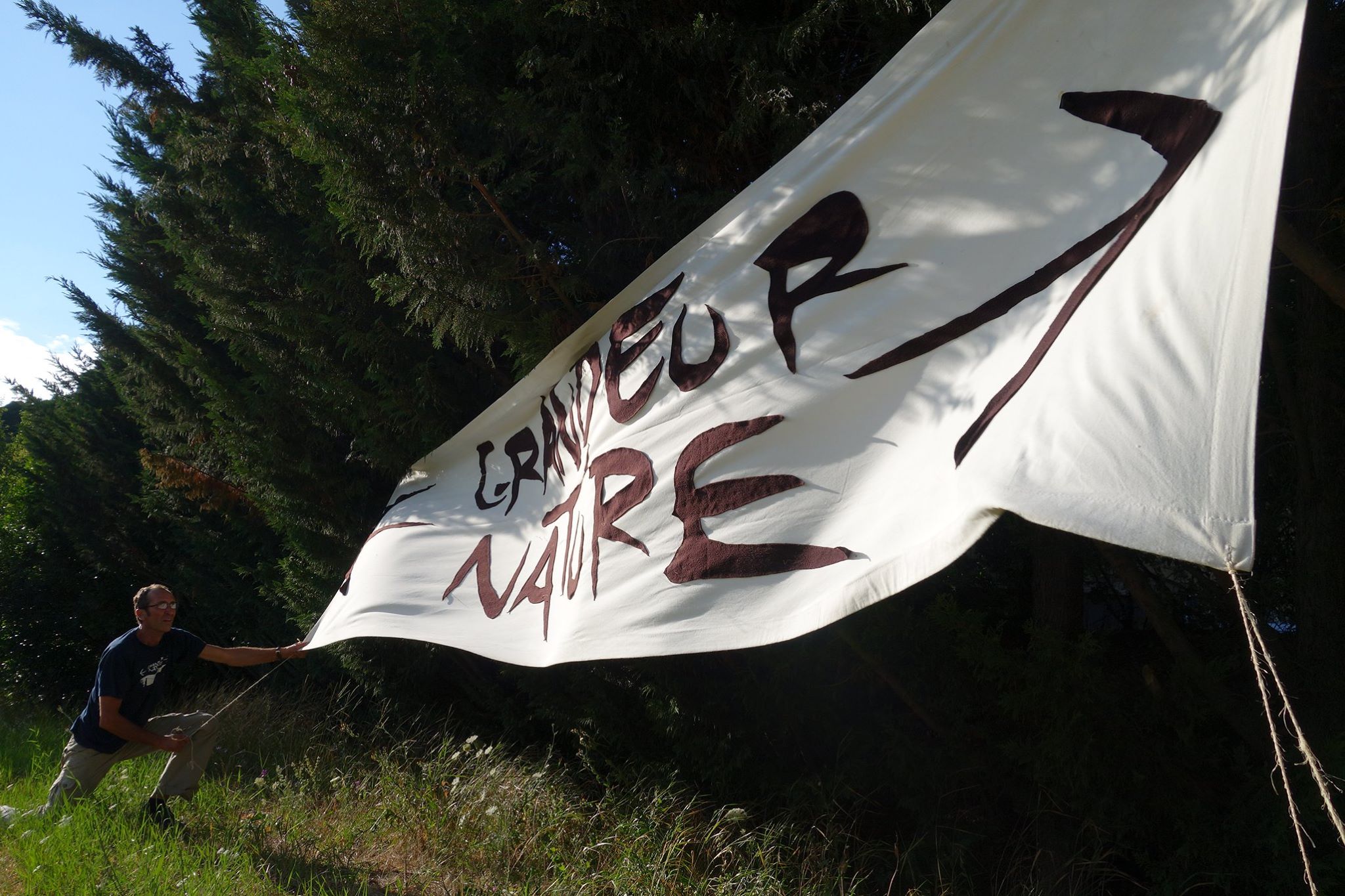 Artist Laura Lio practices land art throughout the world. His Man and Biosphere project focuses on the issue of man and his habitat, and the relationship between man and nature.
Artist Laura Lio practices land art throughout the world. His Man and Biosphere project focuses on the issue of man and his habitat, and the relationship between man and nature.
The objective of this project is to revitalize the Pays d'Apt by organizing cultural events bringing together different groups from the conservatory of our city and professional artists interested in our approach.
A preventive and ethical approach is taken, in terms of comfort and safety (earplugs and free condoms) as well as to facilitate public travel in rural areas. During events, a "deposit" system is set up to eliminate waste. Particular attention is paid to the food used, in close collaboration with local producers in order to offer quality and seasonal products. The decorations and games present at the various concerts are made from recycled materials (recovered wooden pallets and/or tires, factory formwork plates, etc.).
To review a secular itinerary used by the villagers of our town at the time when women went to work on foot in the Pont des Charettes factories (spinning and then licorice) and when the goods were transported with bench tanks.
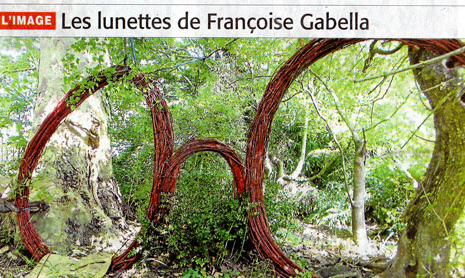 Along these routes, installations of sculptures inspired by the fauna of the scrubland.
Along these routes, installations of sculptures inspired by the fauna of the scrubland.
Vector of nature awareness
The objective of Orbisterre association is to use photography as a vector of knowledge, information and awareness of the landscape, nature, the environment and land use planning.
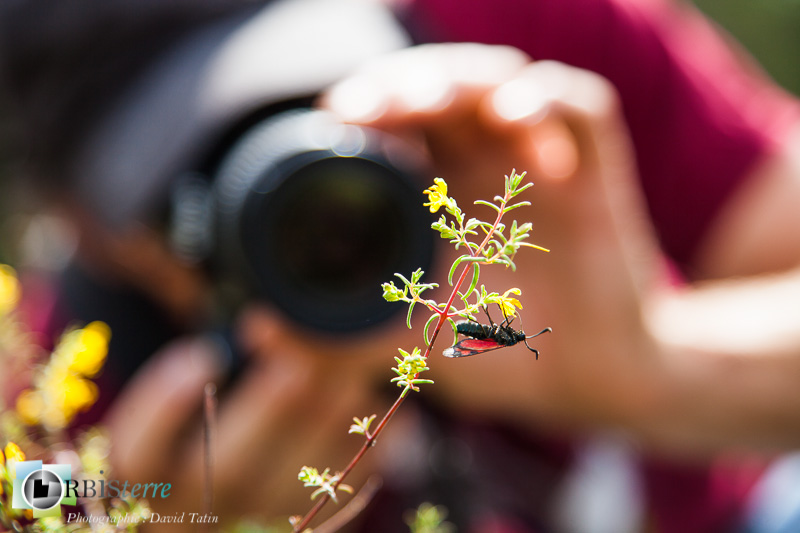 It organizes internships in remarkable natural spaces, as well as exhibitions based on the photographs taken during these internships.
It organizes internships in remarkable natural spaces, as well as exhibitions based on the photographs taken during these internships.
The purpose of the participatory project is to raise awareness among a wide audience during introductory workshops on nature photography, and then during exhibitions.
To give new life to these beliefs, tales and legends that are part of the cultural heritage, by illustrating them, by staging them.
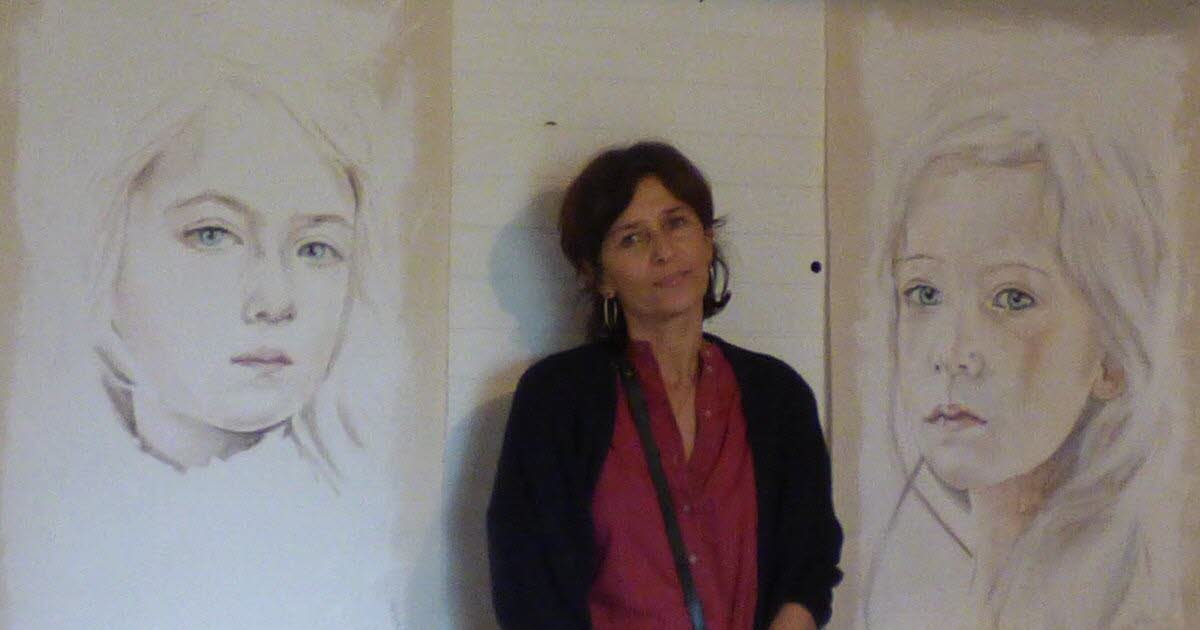 These creations will then be made available to the Mont Ventoux nursery and primary schools.
These creations will then be made available to the Mont Ventoux nursery and primary schools.
"Master chef spaccaravioles", presented by Agriturismo Il Mulino delle Fucine in Casteldelfino, is interested in local cuisine and the territory.
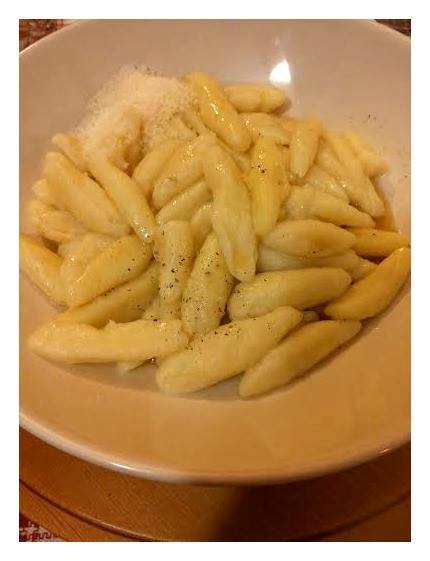 The project consists of eight video episodes, broadcast on the Youtube Spaccaravioles channel, on the preparation of the typical dish of the Upper Varaita Valley, ravioles (NDT = gnocchi), by a "competitor" and its evaluation by a "judge" from the region. During the preparation of the dish, images of the valley are broadcast to promote the territory: events, landscapes, cultural, artisanal, tourist and agricultural activities of the Varaita Valley.
The project consists of eight video episodes, broadcast on the Youtube Spaccaravioles channel, on the preparation of the typical dish of the Upper Varaita Valley, ravioles (NDT = gnocchi), by a "competitor" and its evaluation by a "judge" from the region. During the preparation of the dish, images of the valley are broadcast to promote the territory: events, landscapes, cultural, artisanal, tourist and agricultural activities of the Varaita Valley.
This gourmet walk was conceived during the Youth Forum held in the Mount Viso Transboundary Biosphere Reserve.
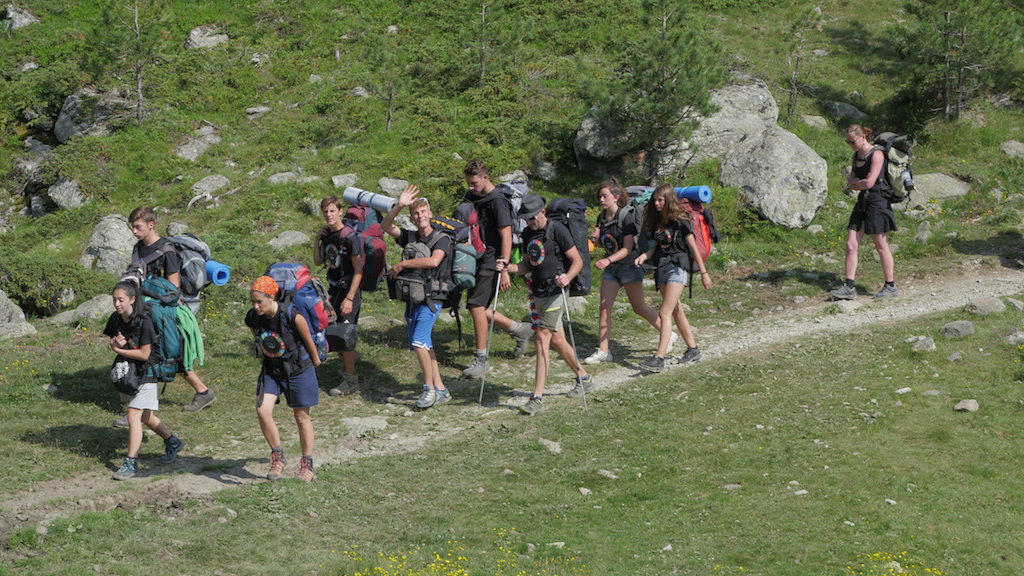 This project, initiated, developed and implemented by the young participants, aims to highlight local quality products during a Franco-Italian gourmet walk, scheduled for spring 2019
This project, initiated, developed and implemented by the young participants, aims to highlight local quality products during a Franco-Italian gourmet walk, scheduled for spring 2019
To produce as naturally as possible, Claude Ughetto is already well involved in biodynamics; he produces herbal teas and decoctions to extract the virtues of each plant in order to care for and strengthen vines and olive trees.
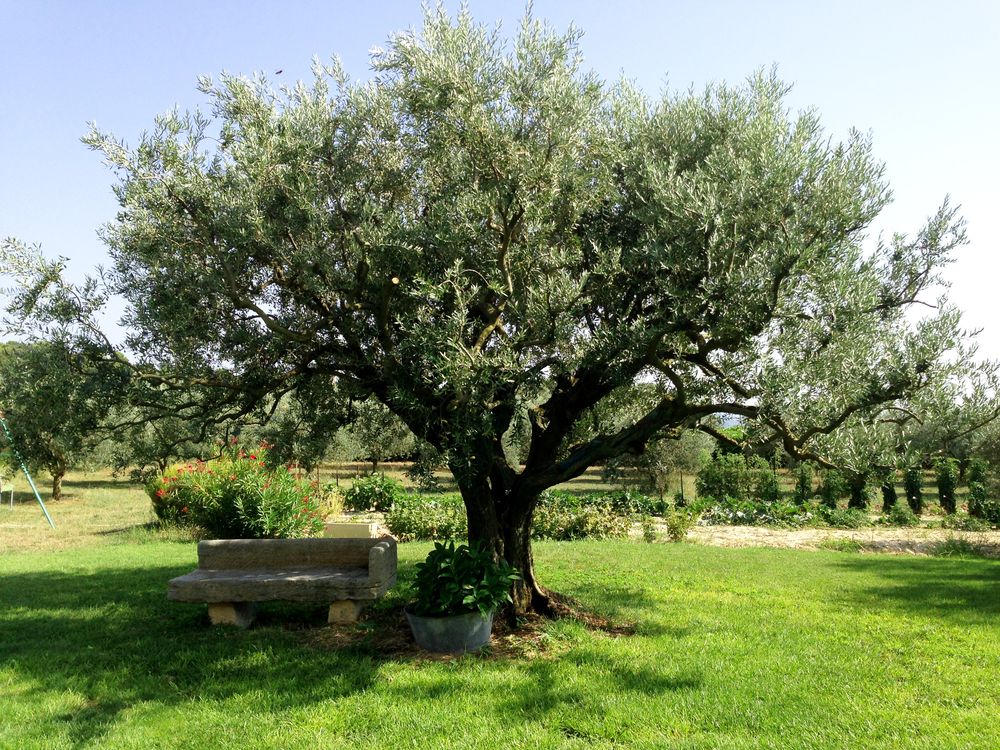 To produce without any chemical products, giving life to the soil, to heal plants by plants, respecting lunar and cosmic rhythms, in the respect of the environment.
To produce without any chemical products, giving life to the soil, to heal plants by plants, respecting lunar and cosmic rhythms, in the respect of the environment.
The Elzeard herd offers municipalities, intermunicipal associations (EPCI) and companies the opportunity to maintain their lawns and green spaces in an ecological and fun way.
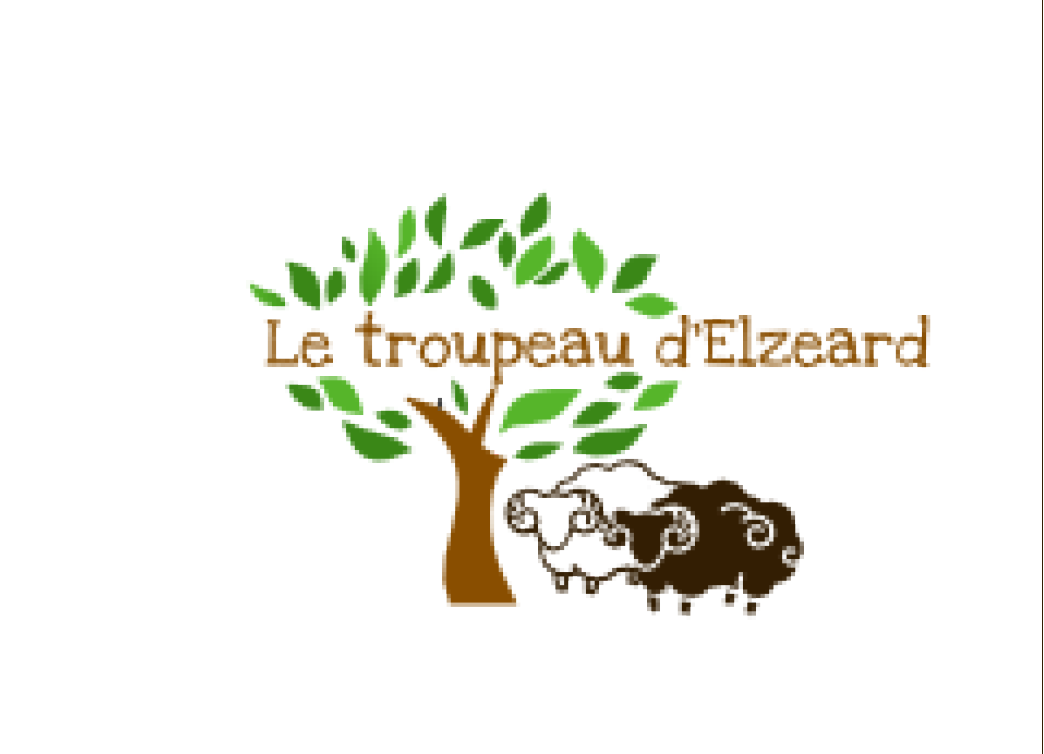 For that purpose, it proposes to maintain the lawns with sheep, and to plant and maintain old fruit trees in these public spaces so that they become places of exchange and discovery
For that purpose, it proposes to maintain the lawns with sheep, and to plant and maintain old fruit trees in these public spaces so that they become places of exchange and discovery
Create a vegetable garden area in a reception centre for discovery classes, to be able to offer activities related to agriculture.
And to transmit values of respect and know-how to children by introducing them to natural gardening and permaculture.
Create resourcing activities, in particular the functions of collecting and recycling objects, resale with solidarity pricing and ecological awareness; a new structure on the territory to recycle objects, but also to recharge the inhabitants' batteries.
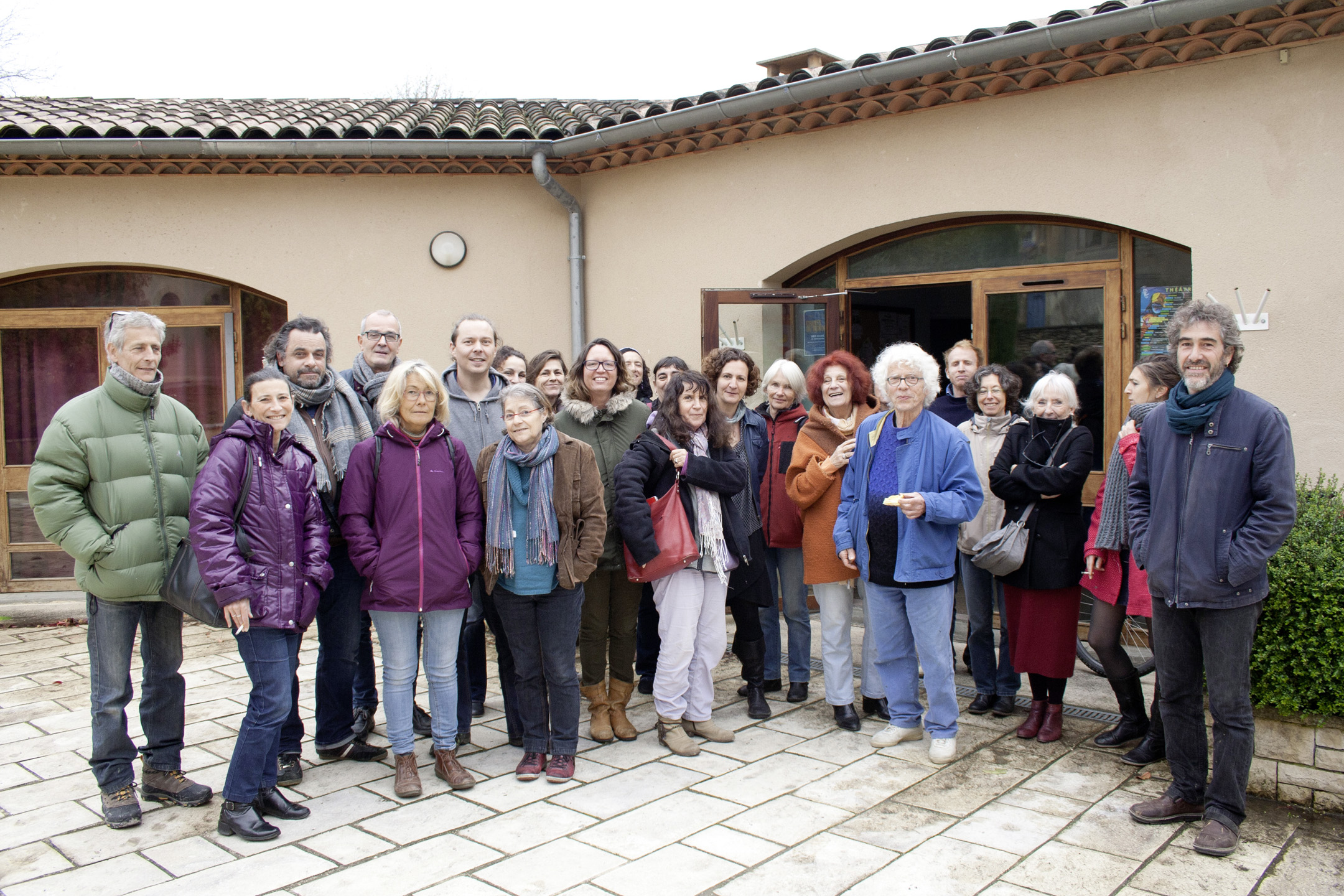 First of all, to give a second life to materials and objects and avoid burial or incineration, but also to offer a landmark open to all the inhabitants of Uzège (and elsewhere) to learn, discover, repair, exchange, tinker with others, both residents and professionals.
First of all, to give a second life to materials and objects and avoid burial or incineration, but also to offer a landmark open to all the inhabitants of Uzège (and elsewhere) to learn, discover, repair, exchange, tinker with others, both residents and professionals.
The objective of this project is to arouse the curiosity of participants in their environment, to make them feel part of their ecosystem, by learning simple, reproducible skills that have the advantage of being ecological and economical.
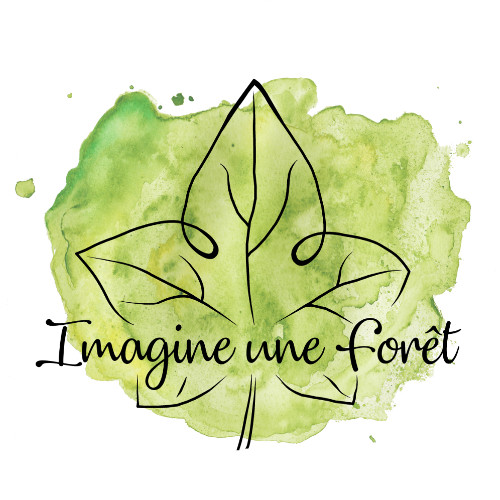 If the project achieves its objective of mobilizing the public, it will encourage the emergence of local initiatives, the aim being to give participants the tools to launch themselves into innovative, environmentally friendly practices.
If the project achieves its objective of mobilizing the public, it will encourage the emergence of local initiatives, the aim being to give participants the tools to launch themselves into innovative, environmentally friendly practices.
It will also make it possible to bring to life a place preserved from urbanization, whose potential is to be developed, to make it a demonstration and sharing ground, welcoming people who want to think about the ecological transition, but also people who do not have access to a beautiful piece of nature.
City water, field water
Through 3 educational perspectives (scientific, cultural, musical) coming from the collaboration of 3 perspectives (a high school student, a blind person, an eco-citizen), this project proposes to build a collaborative path from tree to tree, to discover the natural heritage of the village in a new way and to discover the tree and its role in our cities and villages under a renewed look made of crossings.
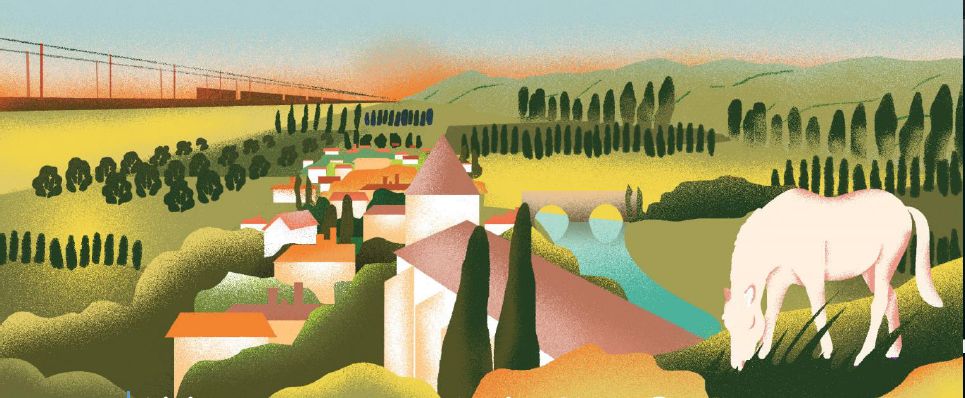 It is based on a participatory census of the trees in the village and on collaboration with local actors for the history of the trees through the links that have been established with the inhabitants. It also offers an awakening listening to trees, especially through traditional (Provençal) musical wood.
It is based on a participatory census of the trees in the village and on collaboration with local actors for the history of the trees through the links that have been established with the inhabitants. It also offers an awakening listening to trees, especially through traditional (Provençal) musical wood.
Fostering eco-citizenship through a participatory, inclusive and stimulating, artistic and cultural approach, as close as possible to the inhabitants and in collaboration with local actors, allows mutual enrichment, for sustainable changes in behaviour on a daily basis towards the natural heritage around us.
This project promotes the conservation of island biodiversity through environmentally friendly farming practices: production without any chemical inputs, flower seedlings to attract insects, etc. It also helps to maintain the natural areas and maintain the typical landscapes of Molène, in particular by fencing to eliminate brambles and protect the moors or by raising the stone walls.
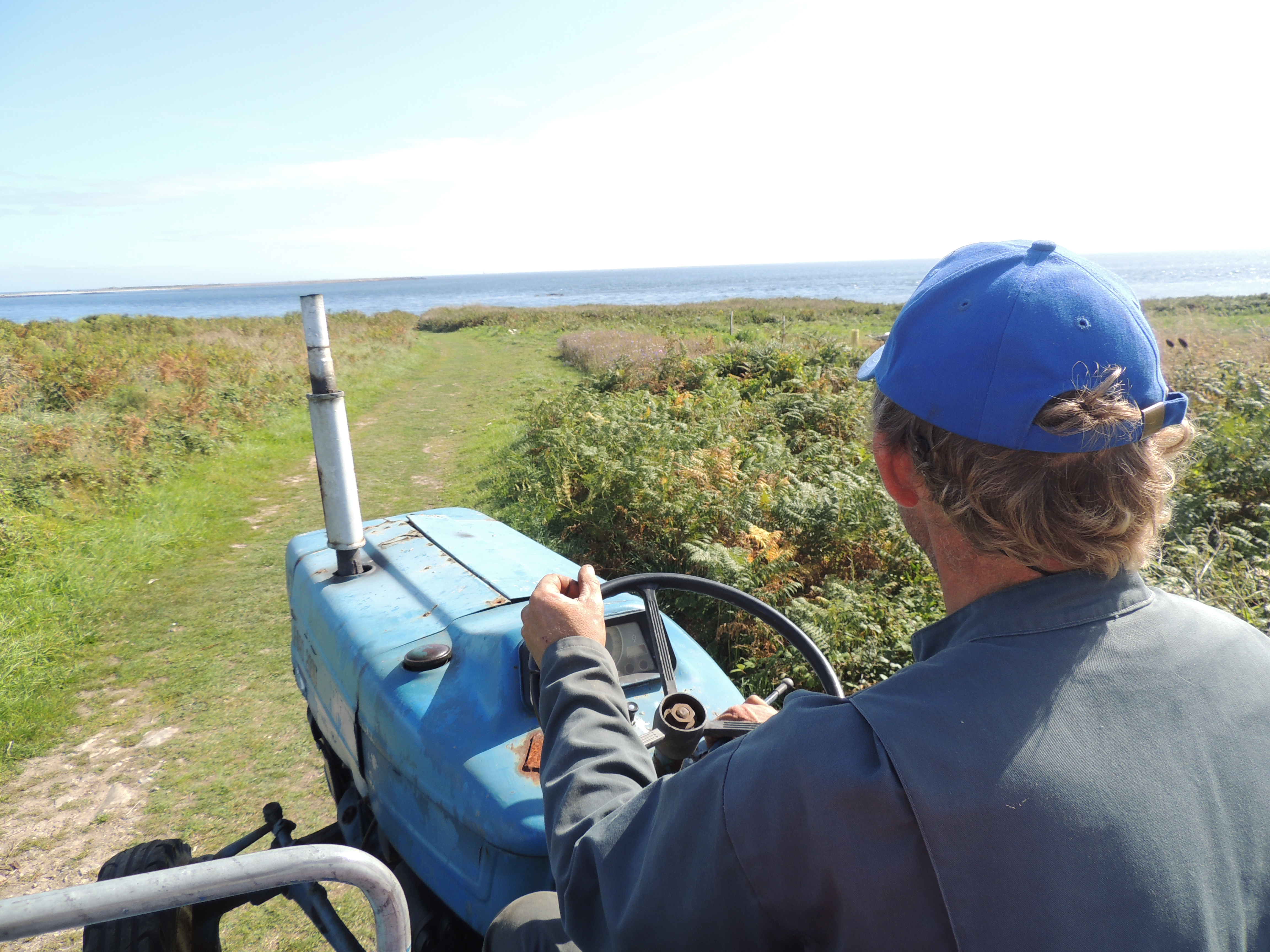 In addition, this project is part of a global approach and involves various local actors on the islands of Molène and Ouessant, including economic actors through the sale of products to island traders. One of the medium-term objectives is to show visitors the island's cultural and natural heritage through a tour of agricultural practices along the stone walls. This tourism activity will raise public awareness of island ecosystems.
In addition, this project is part of a global approach and involves various local actors on the islands of Molène and Ouessant, including economic actors through the sale of products to island traders. One of the medium-term objectives is to show visitors the island's cultural and natural heritage through a tour of agricultural practices along the stone walls. This tourism activity will raise public awareness of island ecosystems.
Propose an island botanical garden that allows the biodiversity of the world's islands to be found in the same area, with the aim of conservation and awareness.
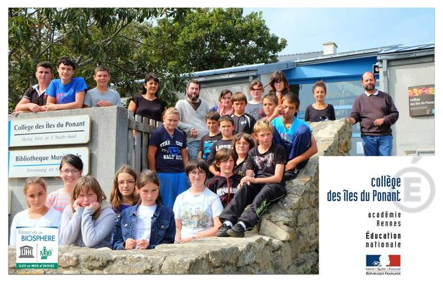 This project will mobilize all the teachers and students of the school. Primary school pupils will also be involved in certain activities in order to provide continuity in Cycle 3.
This project will mobilize all the teachers and students of the school. Primary school pupils will also be involved in certain activities in order to provide continuity in Cycle 3.
A creative and evolving garden to walk and grow together. To lead the participants towards excellence, by developing a collective, sustainable and supportive garden. In the form of the game of biodiversity, this playful space, a life-size space, is emerging under the inspiration of the group.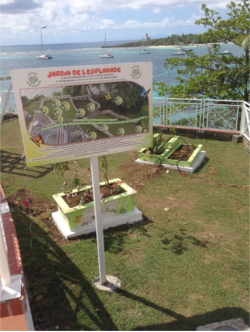
Botanical walks to discover the wild plants of our villages.
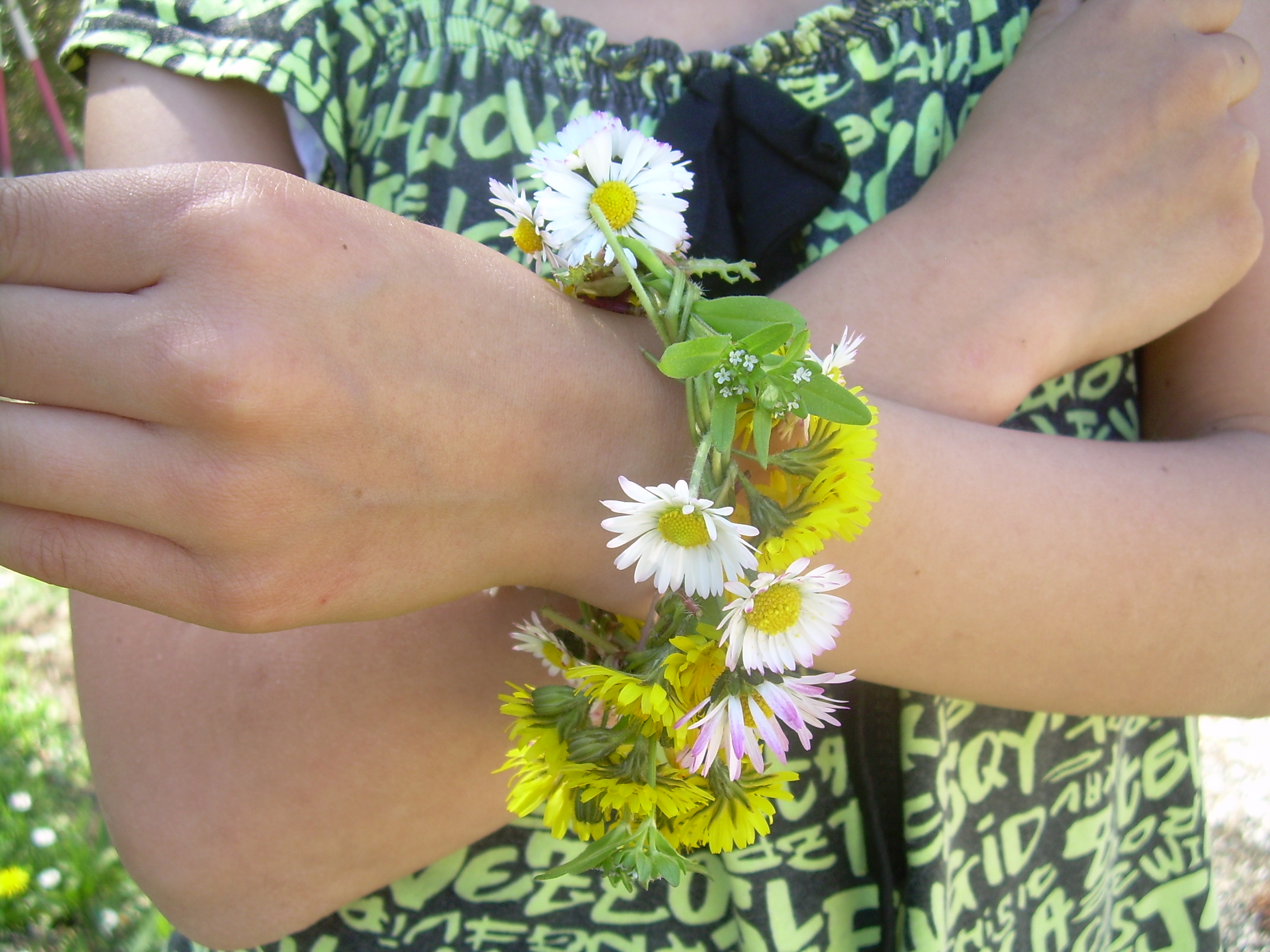 Highlight the so-called "weeds", i.e. the weeds that more or less enthusiastically host our cities and villages - especially since the entry into force of the Labbé law, which has led to their development. And while these plants have an important role to play in human life, they also have a major interest in maintaining biodiversity in and around urban areas.
Highlight the so-called "weeds", i.e. the weeds that more or less enthusiastically host our cities and villages - especially since the entry into force of the Labbé law, which has led to their development. And while these plants have an important role to play in human life, they also have a major interest in maintaining biodiversity in and around urban areas.
The educational and experimental vegetable garden aims to reconnect with the land, rebuild intergenerational social ties, transmit know-how, cultivate your own vegetables and eat locally, eat healthy and[re]discover the tastes of nature, preserve biodiversity & seeds and learn how to create an organic garden.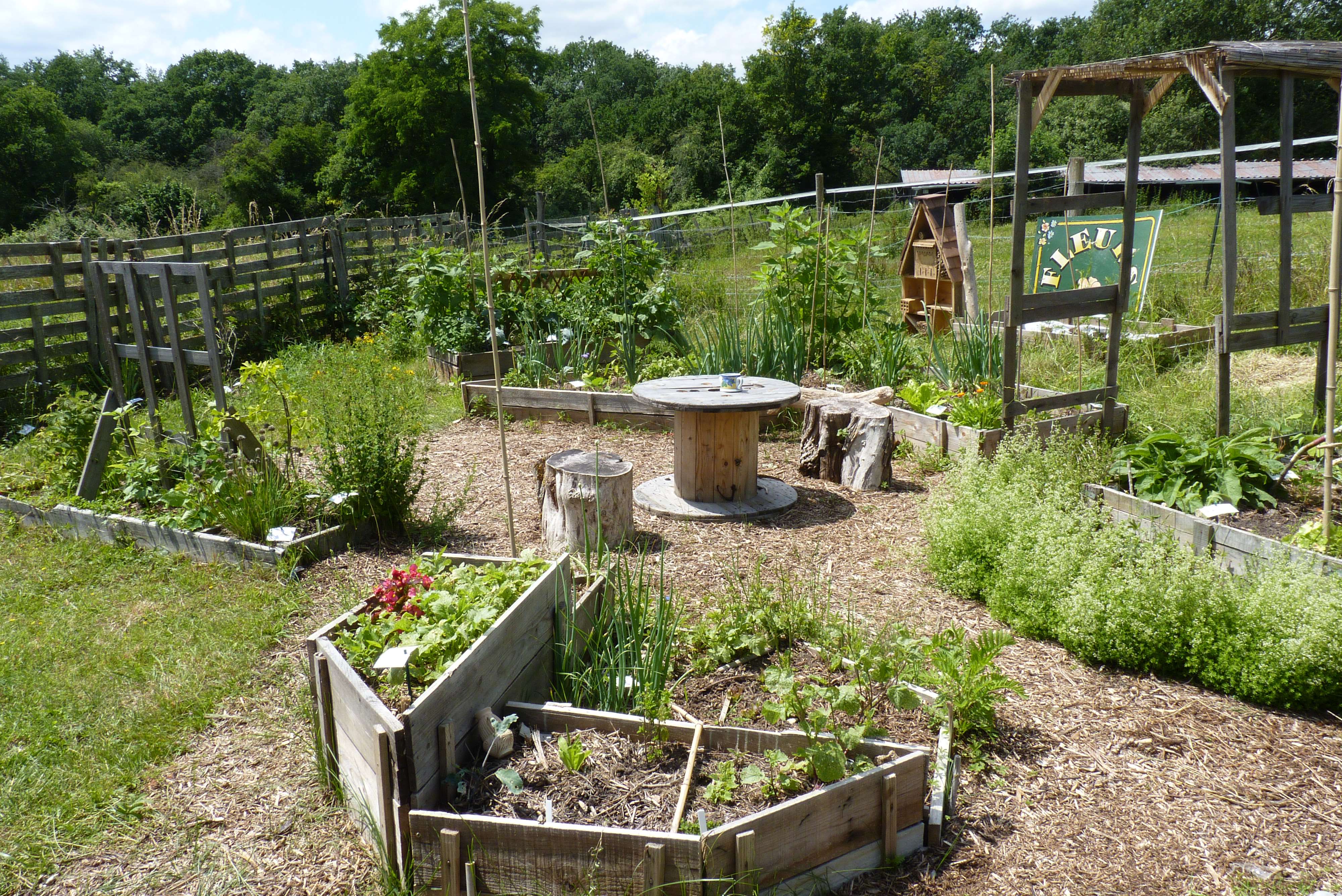
The construction of a house combining high energy performance, frugality and modern technical solutions, within a wooded garden in Oncy-sur-Ecole, to create a cottage certified European eco-label.
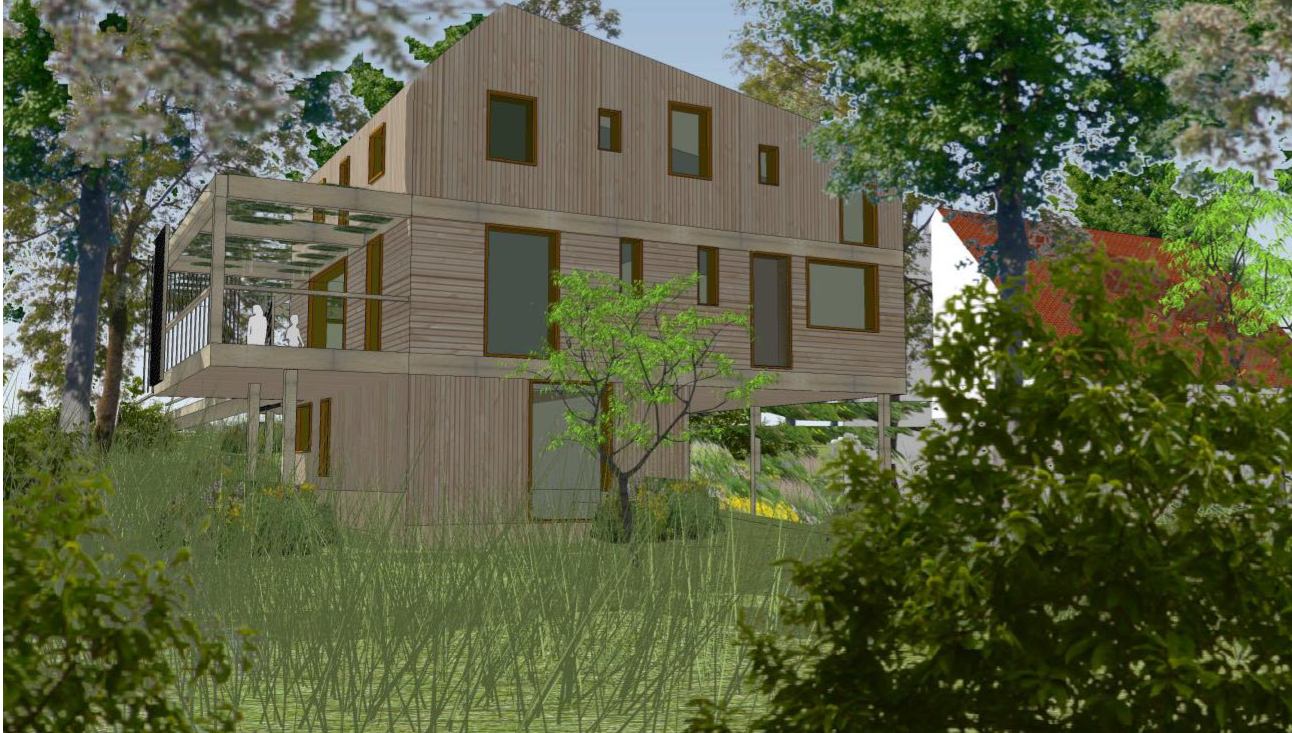 It will be the first of its kind in the Fontainebleau region. The gîte will be mainly intended for foreign or provincial climbers and visitors. Indeed, climbing and "climbing tourism" have been developing at an accelerated pace over the past fifteen years, attracting enthusiasts to the most remarkable sites
It will be the first of its kind in the Fontainebleau region. The gîte will be mainly intended for foreign or provincial climbers and visitors. Indeed, climbing and "climbing tourism" have been developing at an accelerated pace over the past fifteen years, attracting enthusiasts to the most remarkable sites
Contact: Fabien Bronès
Jean-Marie and Brigitte Flandrin are very committed to the preservation and enhancement of the marsh and its heritage and are ambassadors for many networks promoting the region. They own a "Tourism and Disability" and a Panda gîte and have been part of the network of eco-actors since its creation. Their garden is part of the Biosphere Reserve's showcase gardens. They wish to pursue their commitments by continuously improving their activities and have therefore decided to make their garden an exemplary place in terms of accessibility for all. Facilities will be made of recycled or recovered materials to enable anyone with a disability to discover the scents, noises and atmosphere of the marsh: fragrant plants, animals, old vegetables, Braille panels....
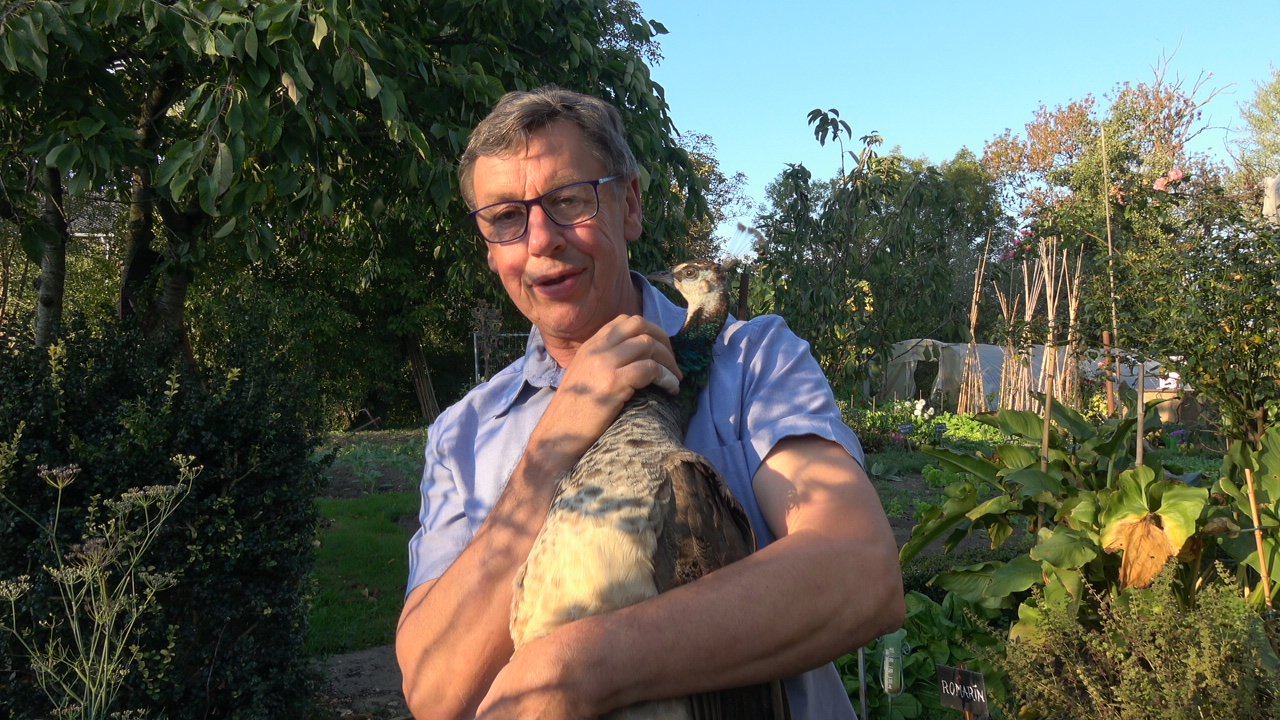
AgroBioPérigord is the lead partner in a multi-partner and cross-functional project to develop organic agriculture and promote the integration of organic and local products in collective catering.
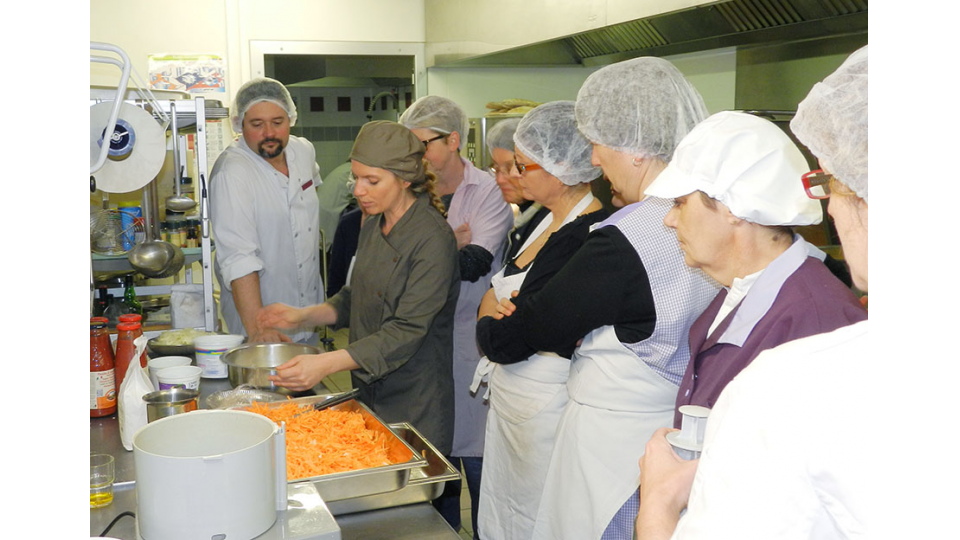 In the Dordogne Basin Biosphere Reserve, within the Dordogne department, several structures have joined forces around AgroBioPérigord as part of a multi-partner and cross-cutting project aimed at developing organic farming through various support and monitoring mechanisms. In addition to developing organic production and planning crops to meet local needs, the approach consists in promoting the integration of organic and local products into collective catering through extensive animation and consulting work, as well as the implementation of logistical support tools that help to optimize supply costs.
In the Dordogne Basin Biosphere Reserve, within the Dordogne department, several structures have joined forces around AgroBioPérigord as part of a multi-partner and cross-cutting project aimed at developing organic farming through various support and monitoring mechanisms. In addition to developing organic production and planning crops to meet local needs, the approach consists in promoting the integration of organic and local products into collective catering through extensive animation and consulting work, as well as the implementation of logistical support tools that help to optimize supply costs.
This project rewards the Plantavid family for the management of their 13 ha property located in the commune of St Germain de Calberte. It consists in accompanying the natural stand of laricio, maritime, woodland and chestnut pines with an average age of 60 years, by setting up an irregular management of these woods with the aim of improving the stand (timber) but also of preserving its heritage value, both landscape and recreational (mushrooms, walks...).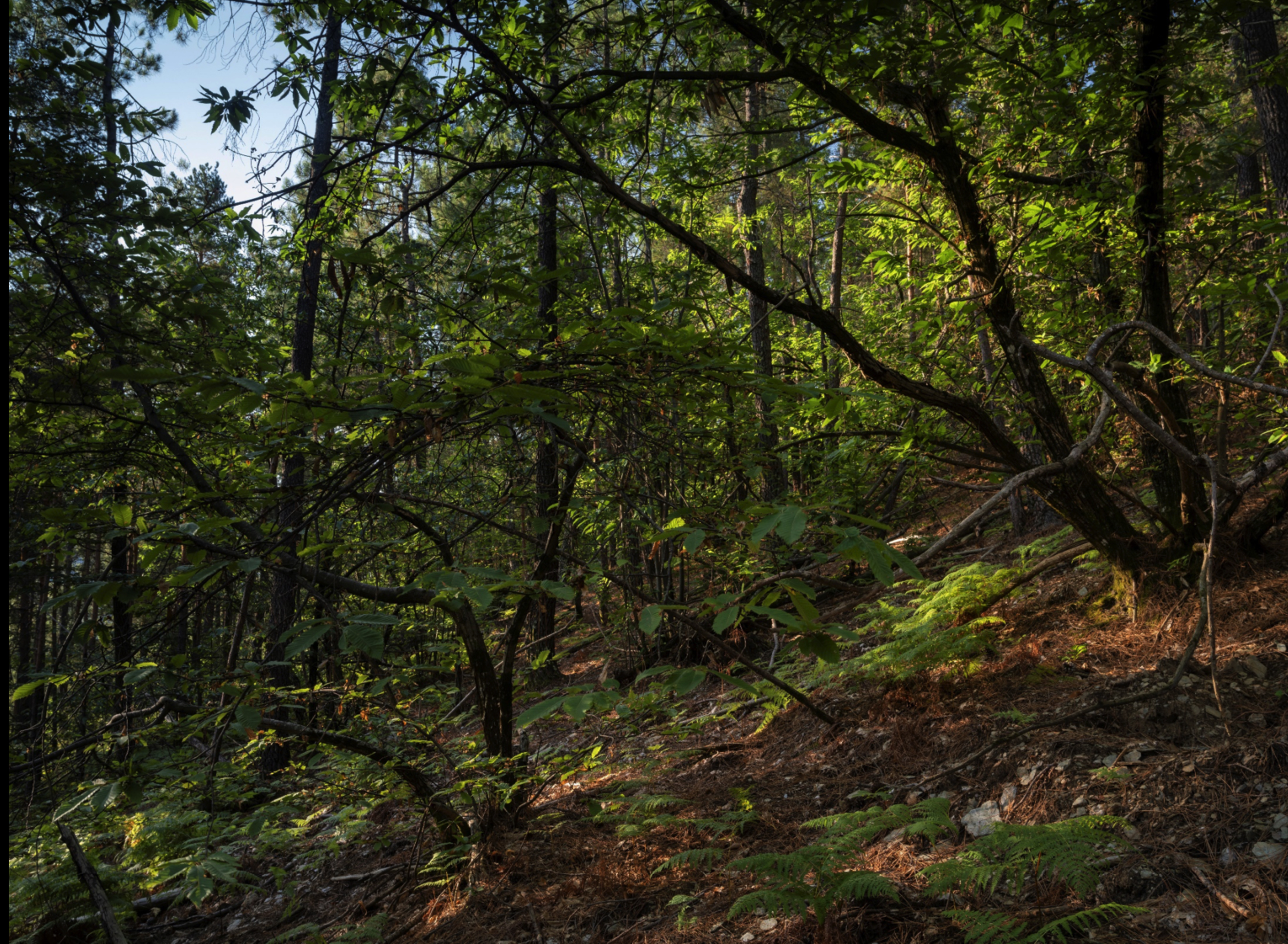
A young and highly visible forest composed of many biodiversity-friendly micro-habitats that host peregrine falcons and many other species.
The project brings together students from a 6th grade class, an allophone class and the 8th grade students of the nesting box club. The work will be multidisciplinary: it will involve the natural sciences and French.
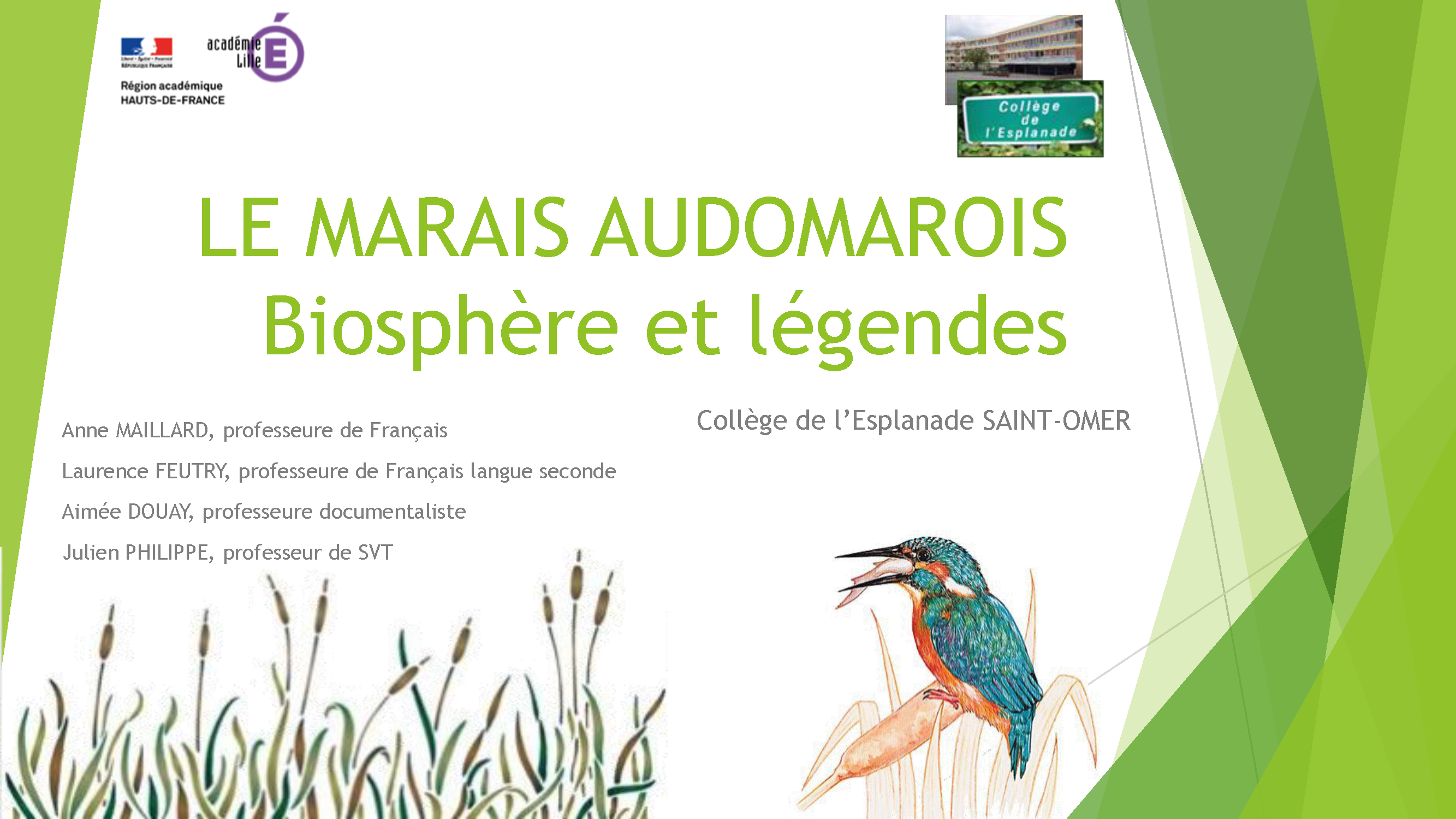 After working on legends, students will rewrite their version of the legend of Marie-Groëtte. An exhibition will be held on legends from here and elsewhere.
After working on legends, students will rewrite their version of the legend of Marie-Groëtte. An exhibition will be held on legends from here and elsewhere.
With the nesting box club, accompanied by the Pas-de-Calais LPO, the students will build nesting boxes that will then be placed in the marsh.
Outings with Eden 62 will allow them to discover the local fauna and flora. They will then create information panels that will accompany visitors on their walks in the marsh to discover or rediscover the natural and landscape heritage.
The Conservatory aims to promote and transmit the cultural heritage of the Audomarois and Flanders through its legends and original creations. The Conservatory has about ten volunteers and four intermittents of the show.
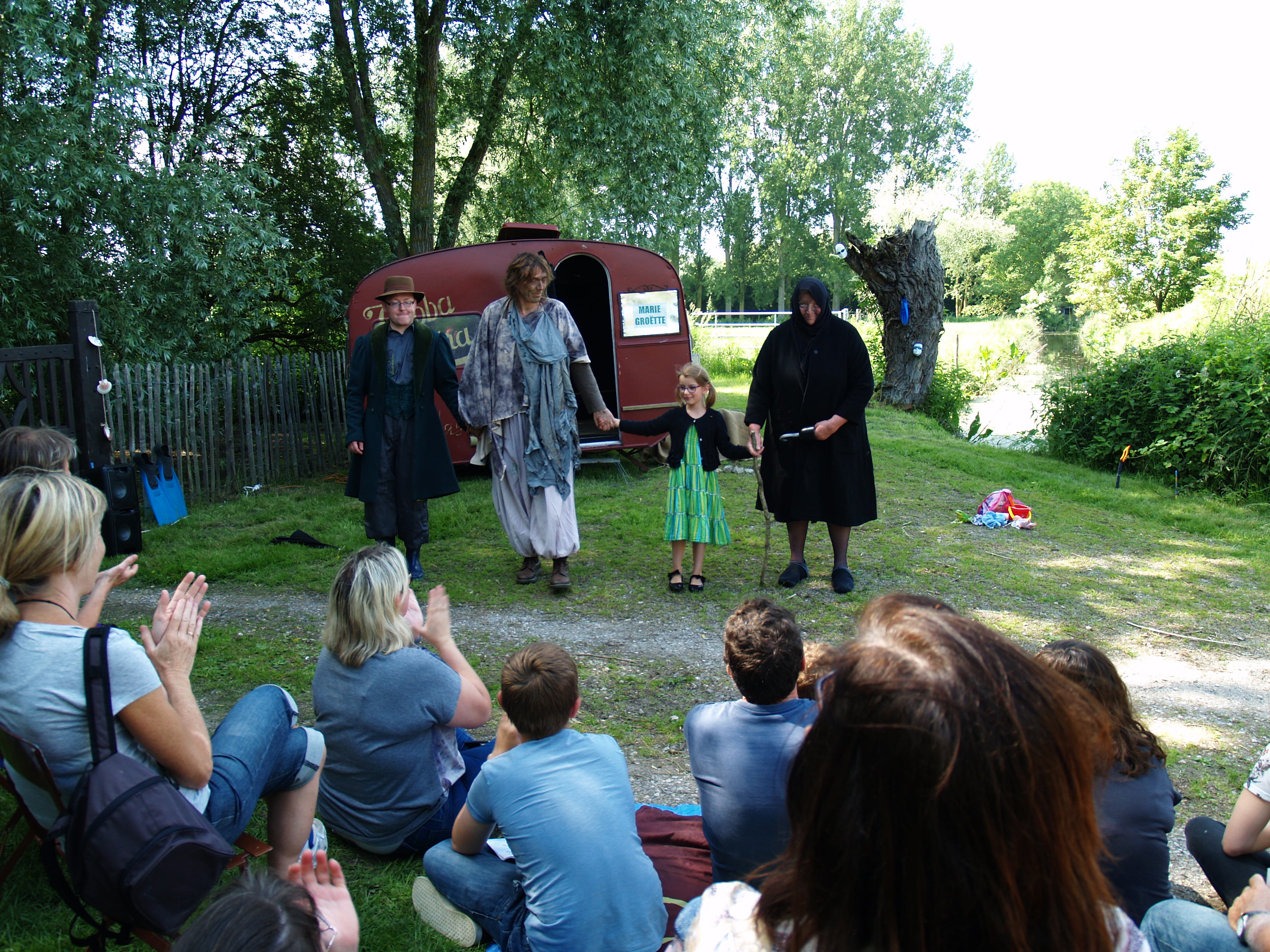 La Tabba Teatra is a small caravan that allows theatre performances and workshops to travel throughout the whole territory of the marsh, Flanders and Artois.
La Tabba Teatra is a small caravan that allows theatre performances and workshops to travel throughout the whole territory of the marsh, Flanders and Artois.
The Conservatory wishes to encourage people, children, schoolchildren, adults, groups... to discover and respect their environment, and rediscover the heritage of the past so that everyone can understand their cultural roots, habits and customs.
This project is part of the "Pour deux mains " educational garden in the city of AVON. Its objective is to raise awareness of the problem of sustainable development around the garden. It is managed jointly by local associations and the City of AVON, with the participation of children (including school/college students) and adults.
Enhance areas of ecological interest: an example for the farms in the area, by managing areas adjacent to the Po, creating real ecological corridors along the river.
Learn more: Podere Pignatelli Institute
Contact: Silvio Marocco
..around the discovery of the surrounding environment. To strengthen the links between people and nature, the association Loisirs et animation proposes actions in favour of local heritage and the discovery of ways of life, past and present, and their impact.
A valley of a thousand walls, a thousand solidarity : brushing and gardening, symbolized by a weather vane of the biosphere that dominates the valley.
Potazer as for vegetable garden
Comforting the vegetable garden in its approach to maintaining cultivated biodiversity, in connection with its territory and its inhabitants
As part of its sustainable development policy, Arc France has installed 5 hives on the Arques site in a somewhat unsuspected natural area.
From April to September, workshops are offered to employees at lunchtime to discover the world of bees.
A "biodiversity" trail will take place a few steps from the hives and a pond. An observatory and information panels on fauna and flora will help to better understand and respect local biodiversity.
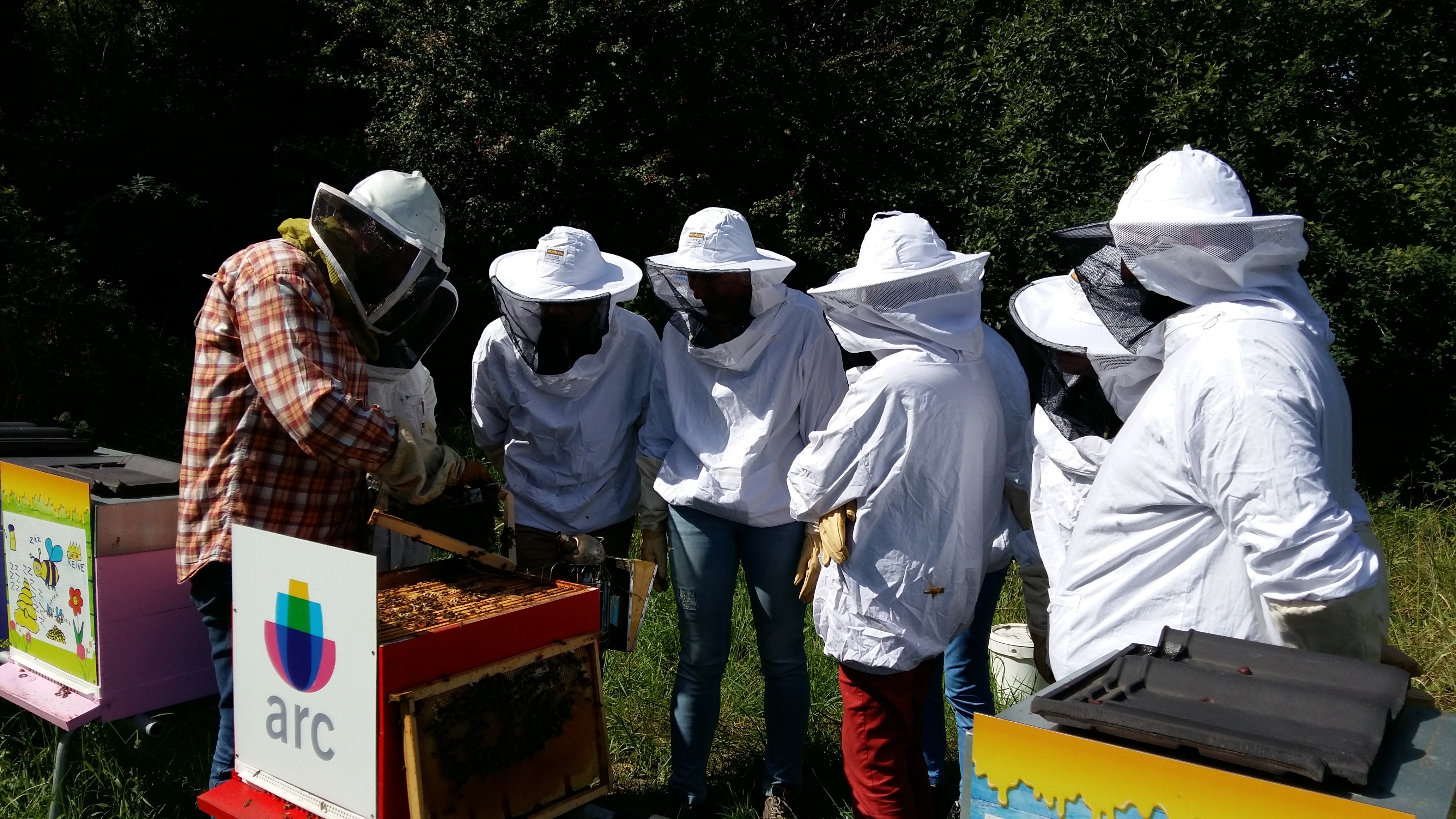
The association CITRE (Citoyens pour la Transition et la Reconversion Energétique/ Citizens for Transition and Energy Reconversion) aims to promote the support and participation of local actors in a pioneering citizen project in the area.
The construction of the first citizen photovoltaic unit in Uzège on the roof of the Sanilhac-Sagriès school, which will be undertaken by the citizen cooperative, itself supported by the association CITRE.
A local development project on the territory of Uzège Pont du Gard which proposes concrete and participative actions meeting the criteria for selecting the Trophies at several levels
- Enhance the know-how and techniques adapted to the territory in order to preserve the heritage and the energy performance of the building.
- To boost the local and rural economy by highlighting, developing and disseminating natural materials from the region: straw, hemp, stone, earth, etc.
- Inform, train and raise awareness among the general public, professionals and local stakeholders to develop a short local eco-construction sector.
Of Indo-Tibetan origin, the mandala (circle, center) is a place of dynamic energy that represents the vital energy present in the universe. The project is to teach and produce in a different way. By using different materials to produce it, combining the pedagogical reference framework for the training of the Professional Patent "workshop manager for horticultural productions" and the BPA "horticultural production work".
Awareness-raising actions on environmental protection, through the production of a musical tale, a show performed by the pupils, school children.
A work of wareness raising, to revalue the local heritage, the know-how at the service of stone, craftsmen, quarry workers, cutters, sculptors, marble workers, builders and architects.
Plant local species, restore a wetland, and create an observatory to watch nature. With the participation of the schools of the commune.
This project starts from a fallow garden, respecting the existing ones (vines, fruit trees...) that it rents in Vieil Avon, and is part of a heritage and local market gardening and food-producing tradition.
Create our landscapes in all four seasons, live and work in our country
To know and make known the work of the vine, to show the assets and problems of this activity, to value the profession of independent winegrower and the cooperative world.
To highlight the link between the work of farmers and the landscape, to encourage young winegrowers on an environmental, economic and social level and to animate the village all year round around the vineyard.
Alexandre is a sheep farmer, his production system is based on sustainable management, limiting the use of antibiotics, and grazing in natural areas to ensure landscape maintenance - in the process of converting to organic farming.
The construction of an eco-place by citizens seeking to show that there are alternative solutions to collective housing. The objective of this project is to create 20 housing units, shared interior spaces (laundry room, guest room...) and exterior spaces (garden and vegetable garden) as well as the creation of an associative and cultural café.
Scientific activities and water hikes to raise awareness among schoolchildren about the functioning of the marine ecosystem.
The association Gwajeka, Guadeloupe jeux and Ka (the drum of Guadeloupe), organizes playful competitions, entertainment and workshops to promote traditional toys, involving all generations.
A ceramist introduces the children of the Pierrerue elementary school to the use of local land to make informative ceramic panels for the village orchard. This orchard was planted by the villagers at the initiative of the town hall of Pierrerue.
The association Les carrés potagers bacots proposes to open family gardens to the public and to organise conferences and workshops. The objective is to strengthen the links between people and nature through a gardening activity, by providing local knowledge and know-how.
The rural home of Lacoste is involved in a project on the Almond tree, by maping the almond trees present in the village, to promote its planting and enhance the value of this tree. An animation around the almond tree will be organized throughout the year, involving a wide public: local professionals, artists, children..
Mark Zischka's project is to create an original place by combining traditional building techniques with current technologies: a permaculture design that combines ecological construction with local food and energy production.
The association Les vieux vergers de Lagnes develops educational activities around the creation and maintenance of an orchard with a conservatory vocation. The winning project proposes to develop a signage system to present the orchard, the places and their importance and the different old varieties.
The Guadeloupe School of Traditional Sailing has built a traditional sailing canoe to train young people in the practice of sailing, but also to transmit a know-how .
The Forcalquier Green Village is a collective project that aims to promote a ludic and friendly approach to sustainable development issues, based on an entertainment programme. Workshops, conferences, games, exhibitions are proposed, as well as the experimentation of new modes of organization through economic cooperation and the pooling of resources and skills.
The association l'Essentiel proposes to restore an educational plot with open access to promote knowledge of open environments. Located near the village of Montfuron, near an organic lavender farm and an apiary, this parcel
brings together a variety of flora and fauna around a pond.
The creation of a mandala-shaped garden of honey and pollen plants, in an organic bee farm, as part of the children-parent workshops run by the Montd'école association.
Photography to know, inform and raise awareness
The association Alternative Biodiversité, in Sigonce, organizes conferences, film screenings and debates to raise awareness of good agricultural practices.
